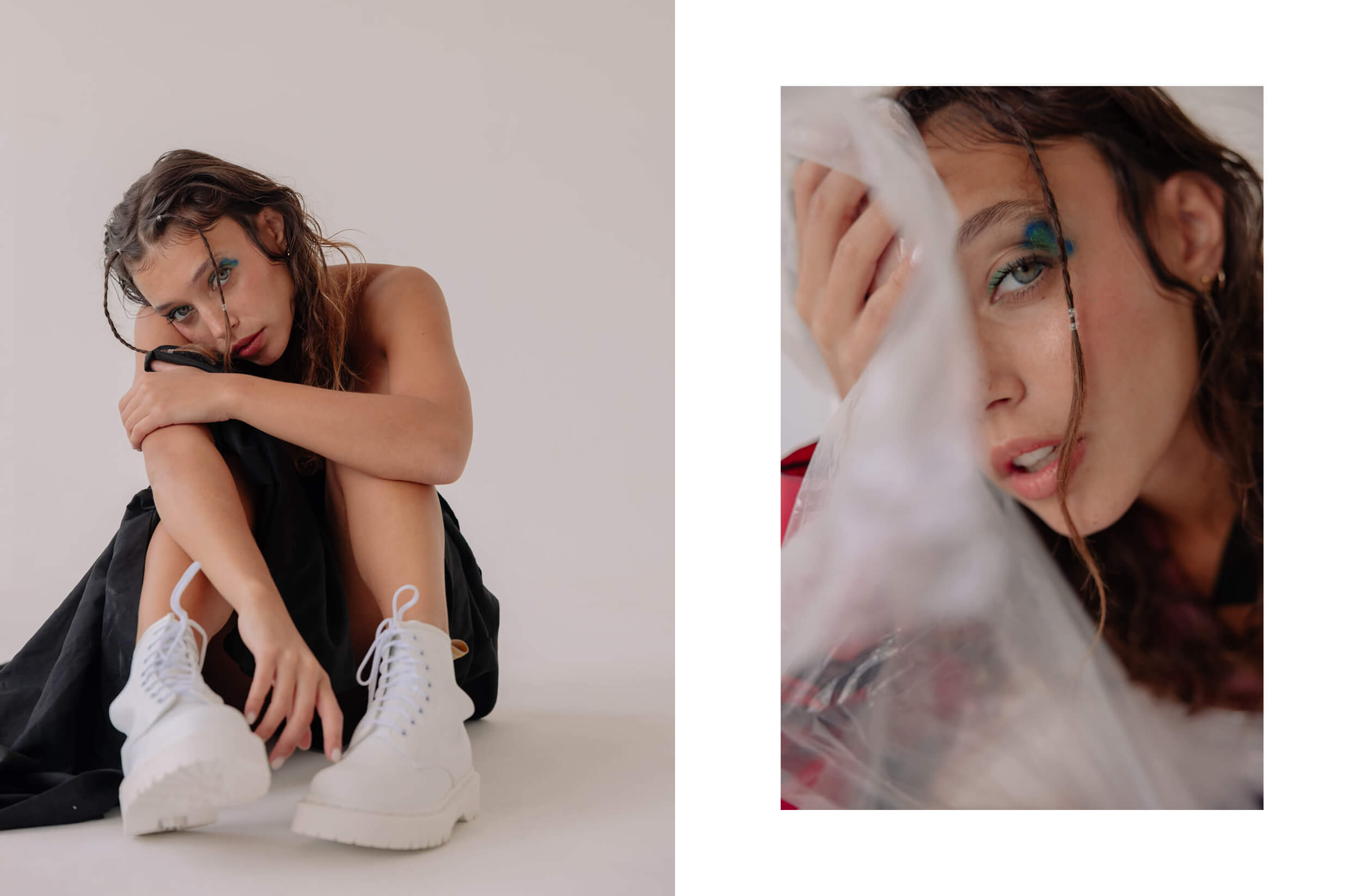A manifesto needs spokespeople.
A revolution needs faces.
A change needs to be triggered by someone.
In these times and in this society, if we talk about taking sides, or rather, conscience, we can’t but do it environmentally-wise: unluckily enough, there’s still a lot of work to be done. Luckily, some people are putting a lot of effort into that cause, especially among the new generations, with the awareness that a big amount (in terms of production in fashion, and much more, and of lack of respect towards human rights and the environment) is now too big.
Among these spokespeople and faces promoting change for the better, there’s also the actress Amanda Campana: after the success of “Summertime” and the awareness gained as an actress, Amanda, as a human being, wants to focus more on making the world a better place. With great sensitivity, veganism, the (rightful) questions that eco-anxiety brings about, and the useful questions we should ask ourselves for a well-thought shopping, Amanda proves to have a huge willpower (more than what she thought), a great desire to put herself in the game and awareness of the importance of working on ourselves, for our benefit, for sure, but also for the benefit of others and of the world. Without ever forgetting that we work to live, and we don’t live to work!
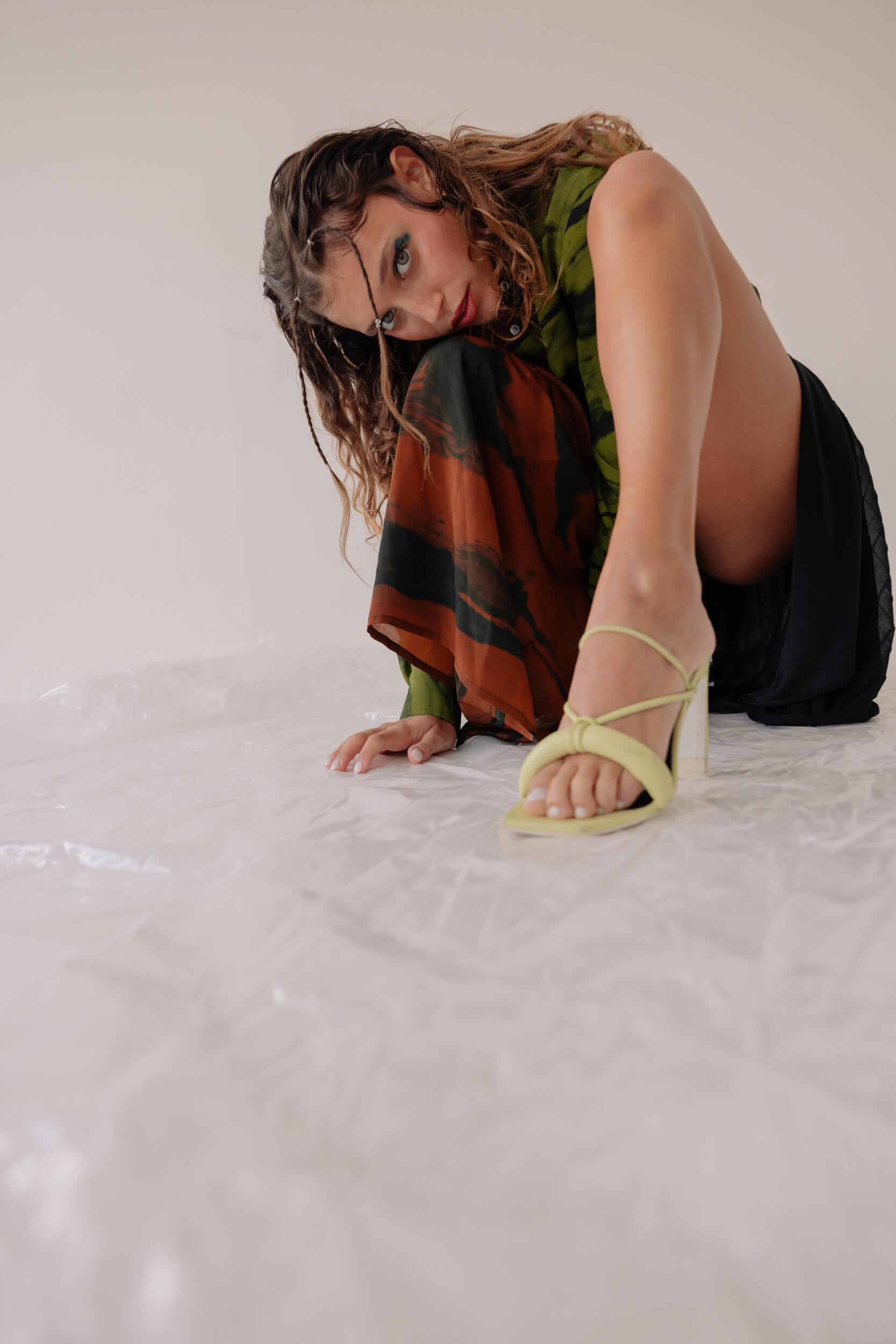
What’s your first cinema memory?
The day I got the part in “Summertime” for sure, so when the director, who was Lorenzo Sportiello in season one, called me after a series of auditions. I went to Rome, 8 times in a row because they would mix us up from audition to audition, to see how things worked between us all, and they would never tell us if we got the part, but they kept calling us [laugh]. I’d lost my mind, I’d just started studying at YD’Actors – Yvonne D’Abbraccio Studio (my current talent agency) and on one hand, I didn’t feel ready, on the other hand, I couldn’t believe I was so close to success. At some point, I just couldn’t bear the wait anymore, but then, one day, Lorenzo called me and said, “Look, Amanda, it wasn’t easy, I’ve tried to speak to the production, but…” and so he made me believe that I hadn’t gotten the part until eventually, he said: “And we’ve chosen you! You’re in the cast of ‘Summertime’!”
So, that was the day when I officially entered this world, and it’s funny that I made this kind of entrance, with a borderline joke [laughs].
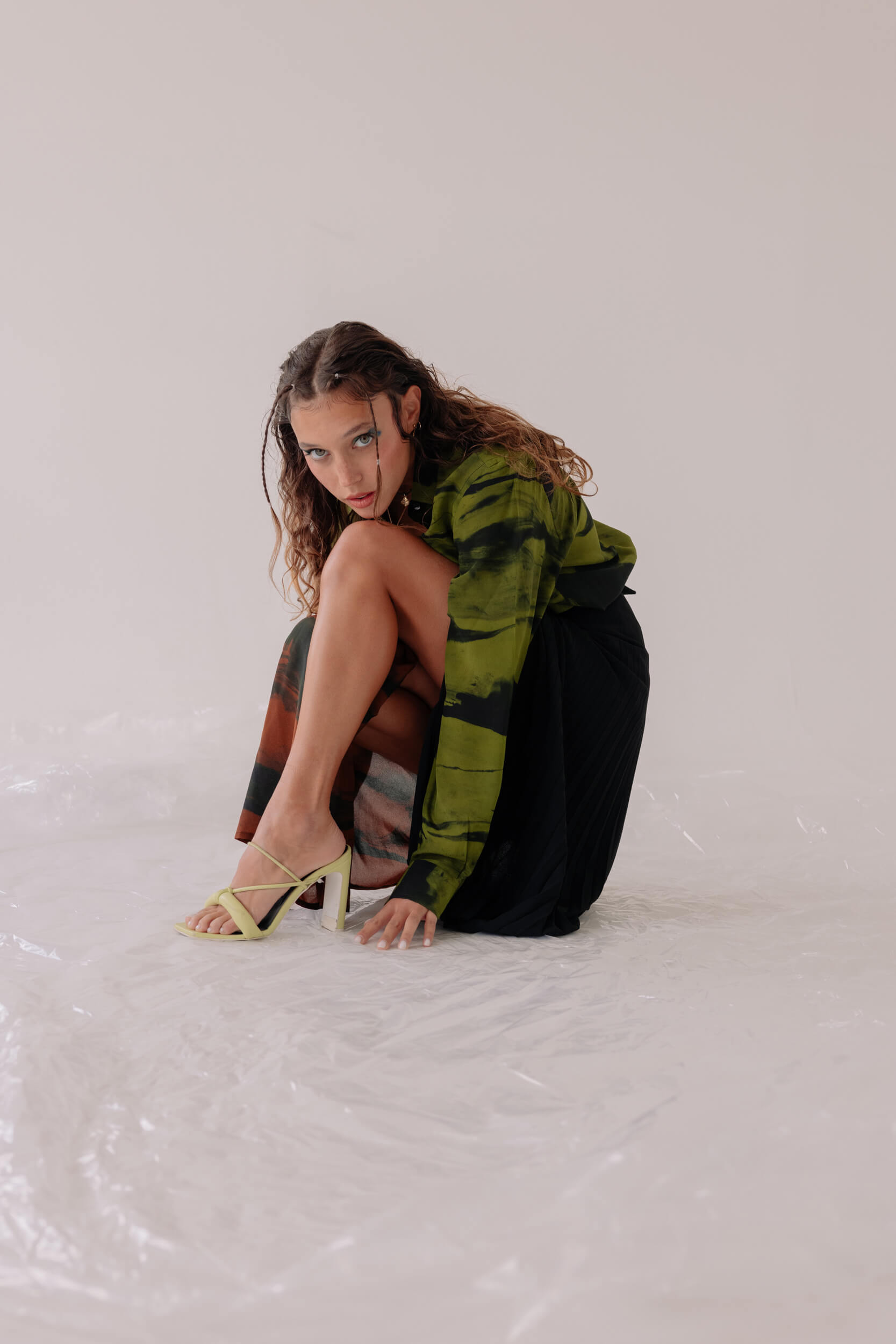
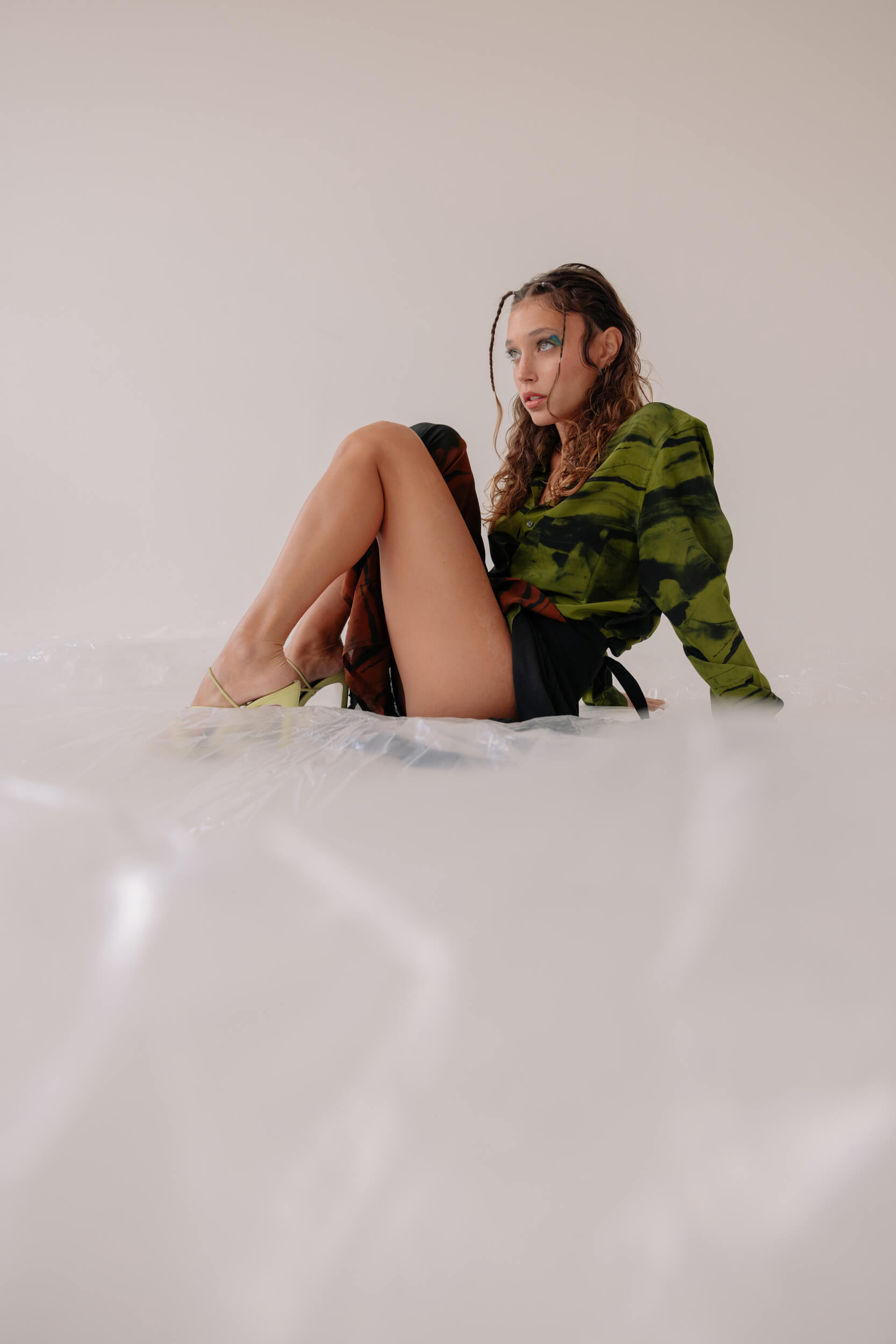
In general, what is it that makes you say yes to a project?
Maybe the uniqueness of the story. For example, when I got the part in the movie “Il mostro della cripta”, when I read the script I thought, “No one has ever done this, it’s too cute, I totally want to do it!”, without even knowing anything about the cast or stuff like that. Then, it went even better than I expected, everyone was amazing, but what made me say yes at the beginning was the fact that I read the script and thought it was one of a kind.
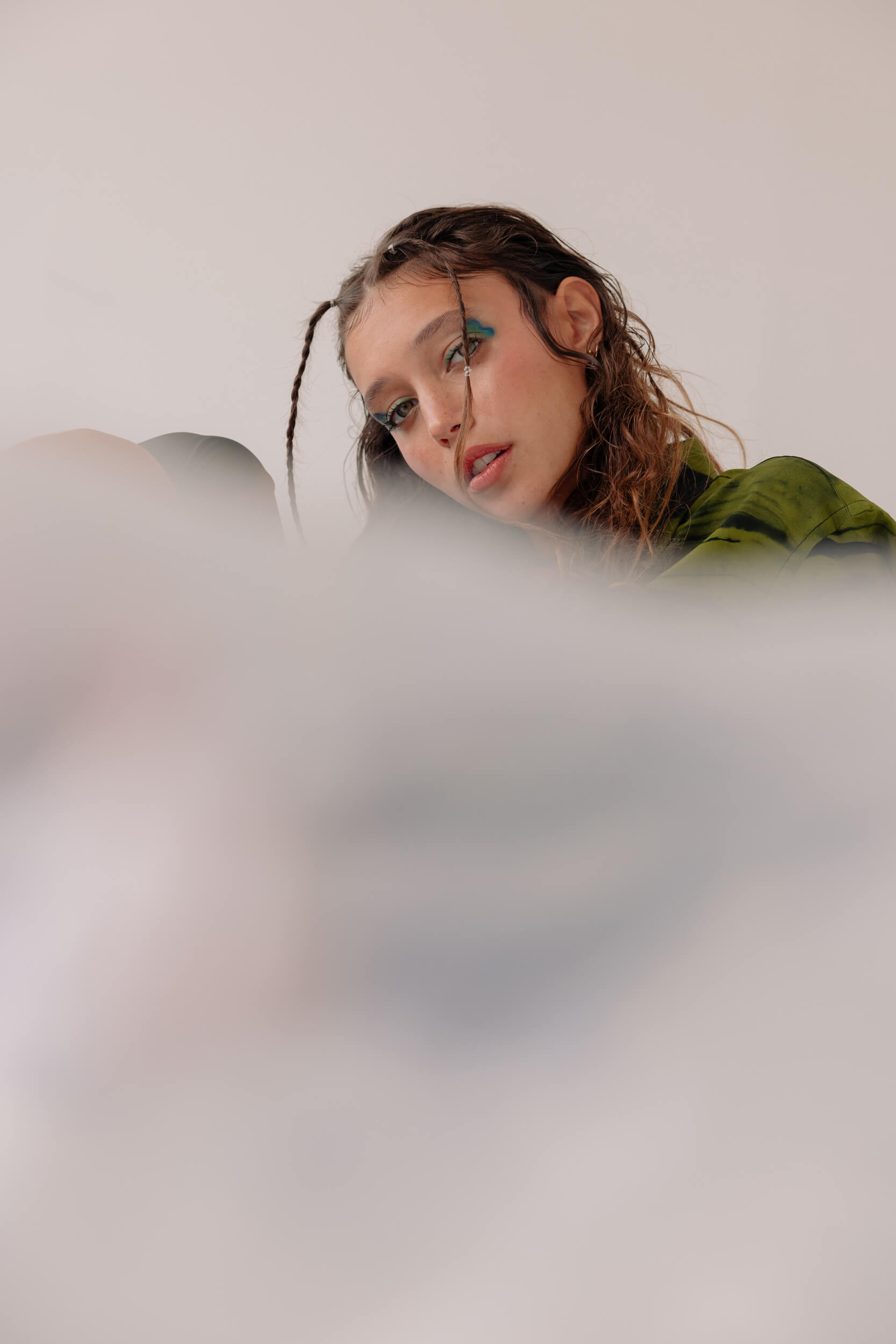
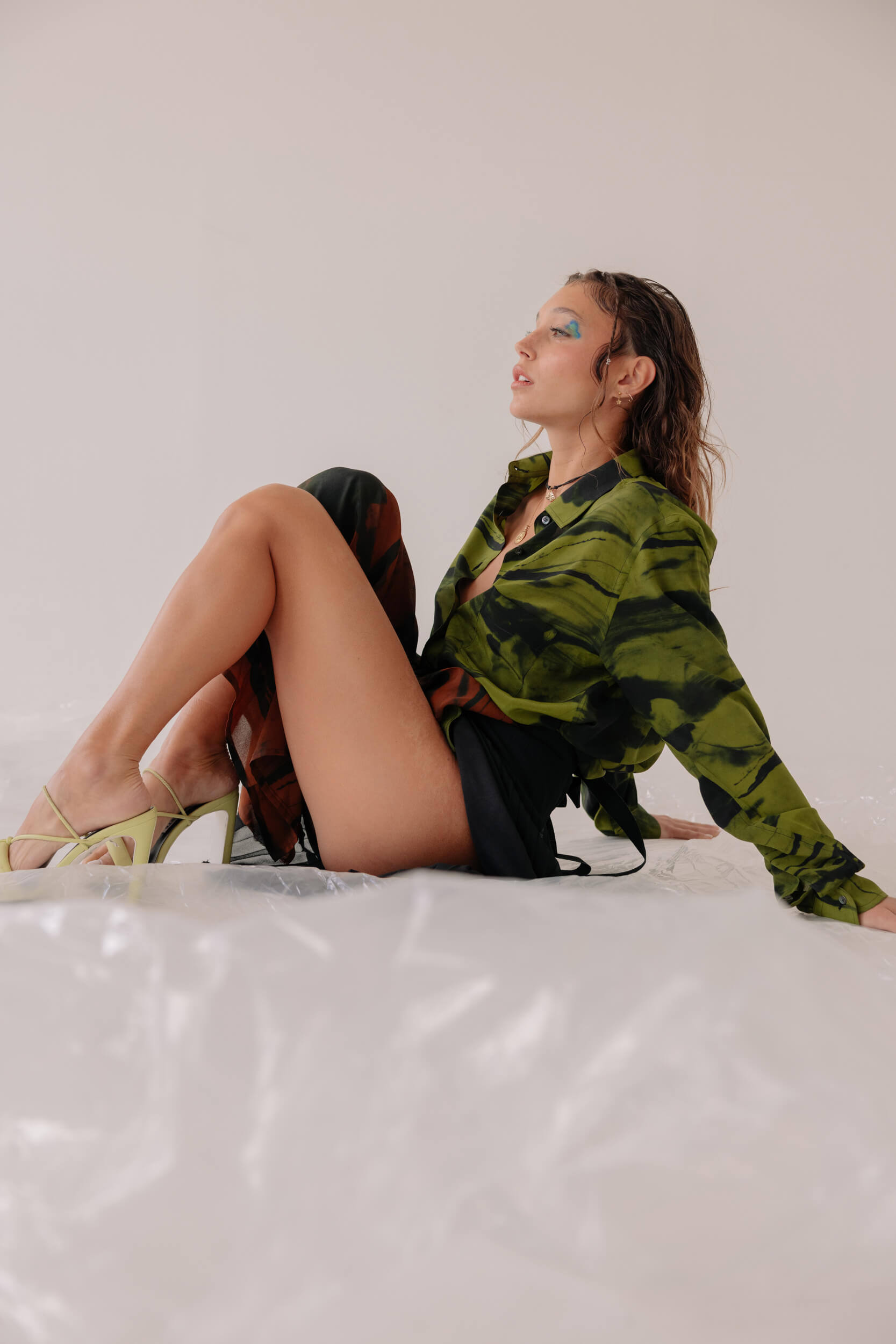
As “Summertime” has ended, is there anything about Sofia that stuck with you or anything she left you with? What’s the unique aspect of hers that impressed you?
Before “Summertime”, I’d never worked in this field, so I didn’t know what to expect. In the beginning, I knew nothing about the project, all they’d told me was that it was a Netflix production, and that made me say “absolutely yes”. Now, I’d probably ponder the situation a little bit better, but “Summertime” was really an important starting point for me, so in retrospect, I made the right decision in the end, also because my character taught me a lot, and not only work-wise or on a personal level, if I think about the people I met, but really as a character. It was educational for me to play an LGBT character, it got me closer to the community with a new point of view, in the sense that I would recognize the need for inclusivity even before this, but I’d never really fought for it, after “Summertime”, instead, I became much more aware, I try and take part in the process, I’m much more careful: it was a nice work of empathy.
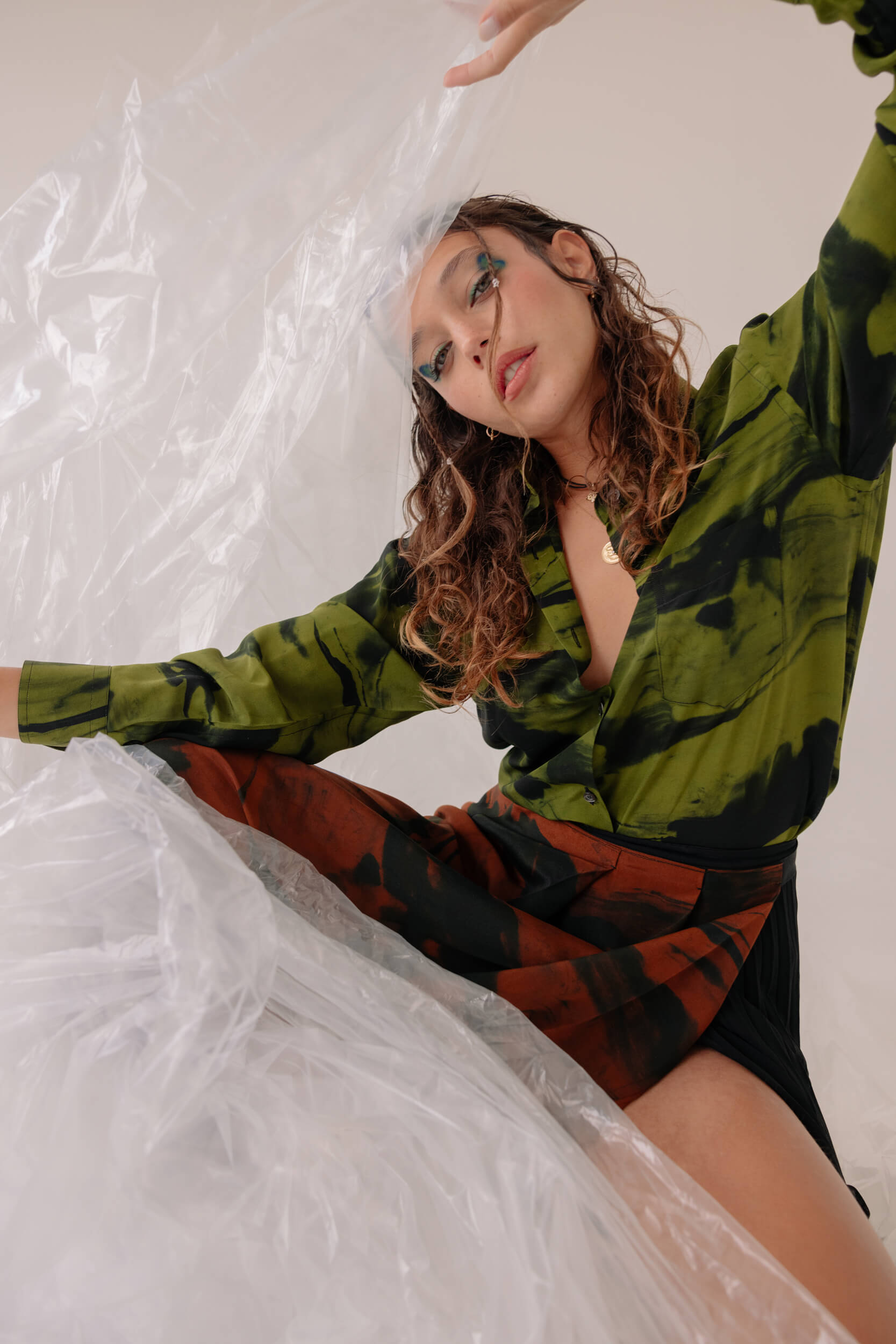
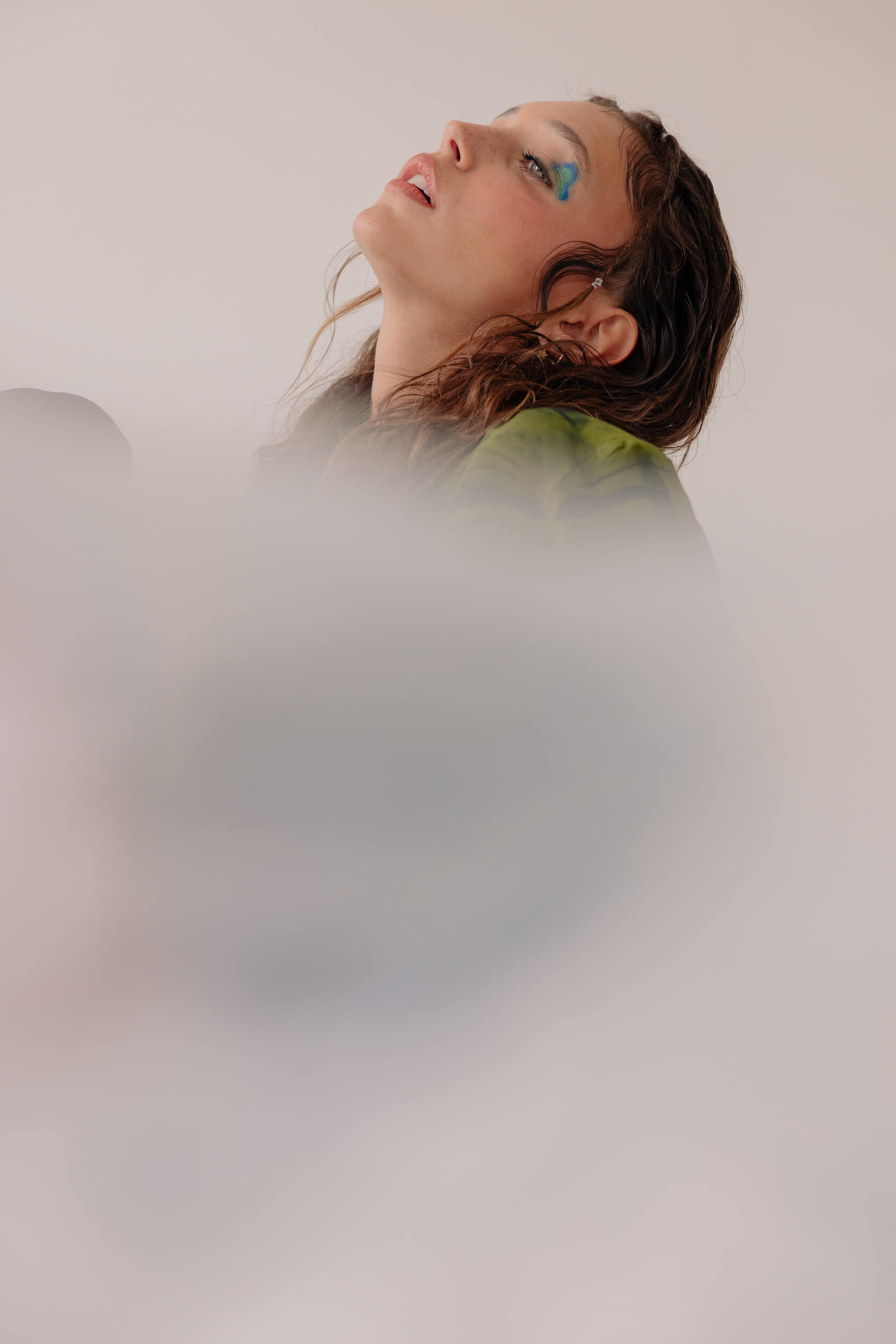
“It was educational for me to play an LGBT character, it got me closer to the community with a new point of view…”
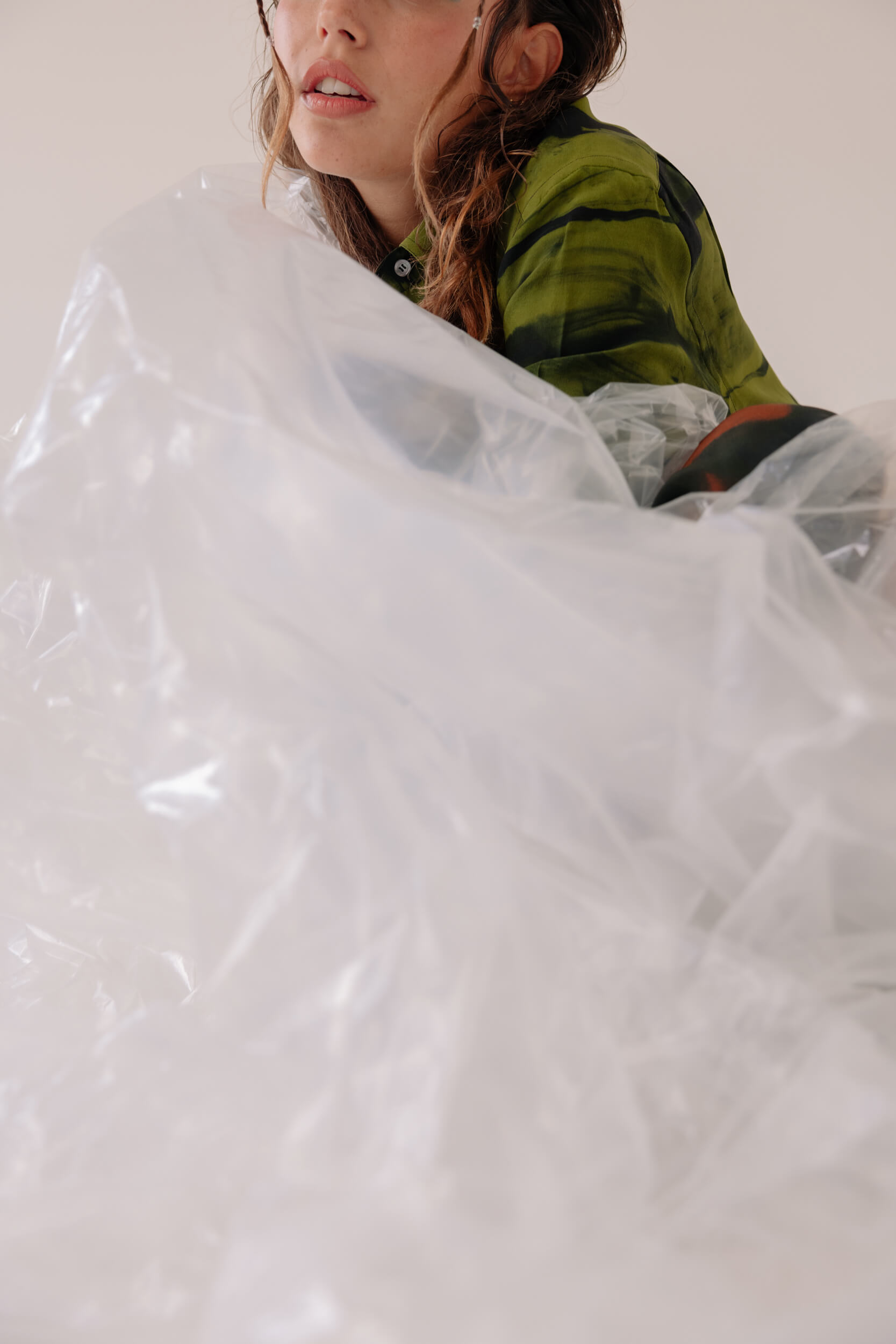
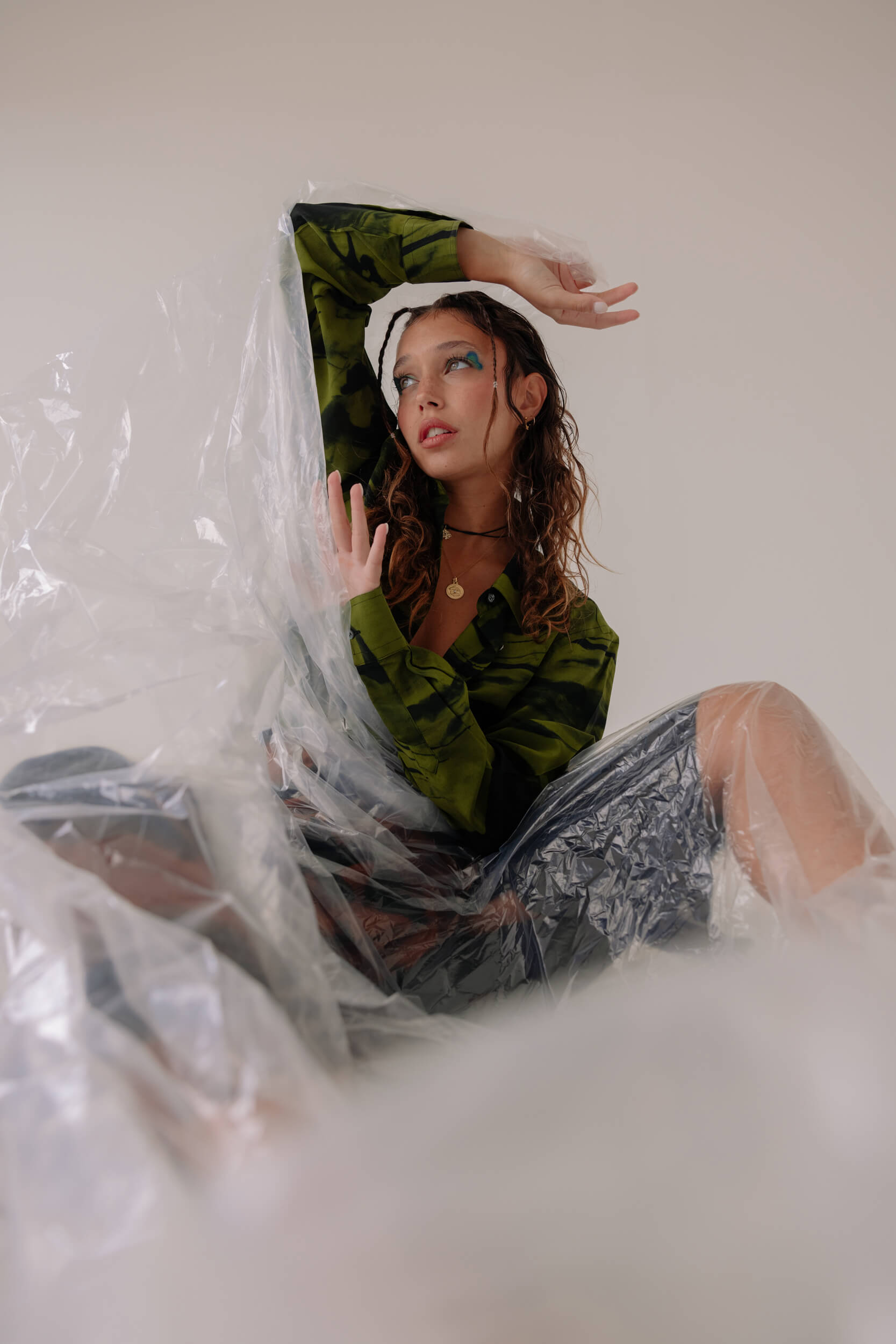
What direction would you want to take now as an actress?
It’s hard to tell because I really love my job, and I would never want to change it, but at the same time, I can’t make projects for the future. The only thing I want for my work life, which is also something that impacts my quality of life, is to be serene and live my life peacefully. What I wish is to be able to work, but not too much, the right amount of work, and do things that can enrich me as a person, that do not stress me.
On this note, I remember reading a statement of yours where you said something like, “you work to live, you don’t live to work”.
Exactly, that’s my life philosophy! When I say this, I’m always scared of seeming very little ambitious, or even lazy, but I believe that life should be separated from work.
Then, obviously, work can be a part of life that enriches it, but life shouldn’t be all about work because what do we live for otherwise?
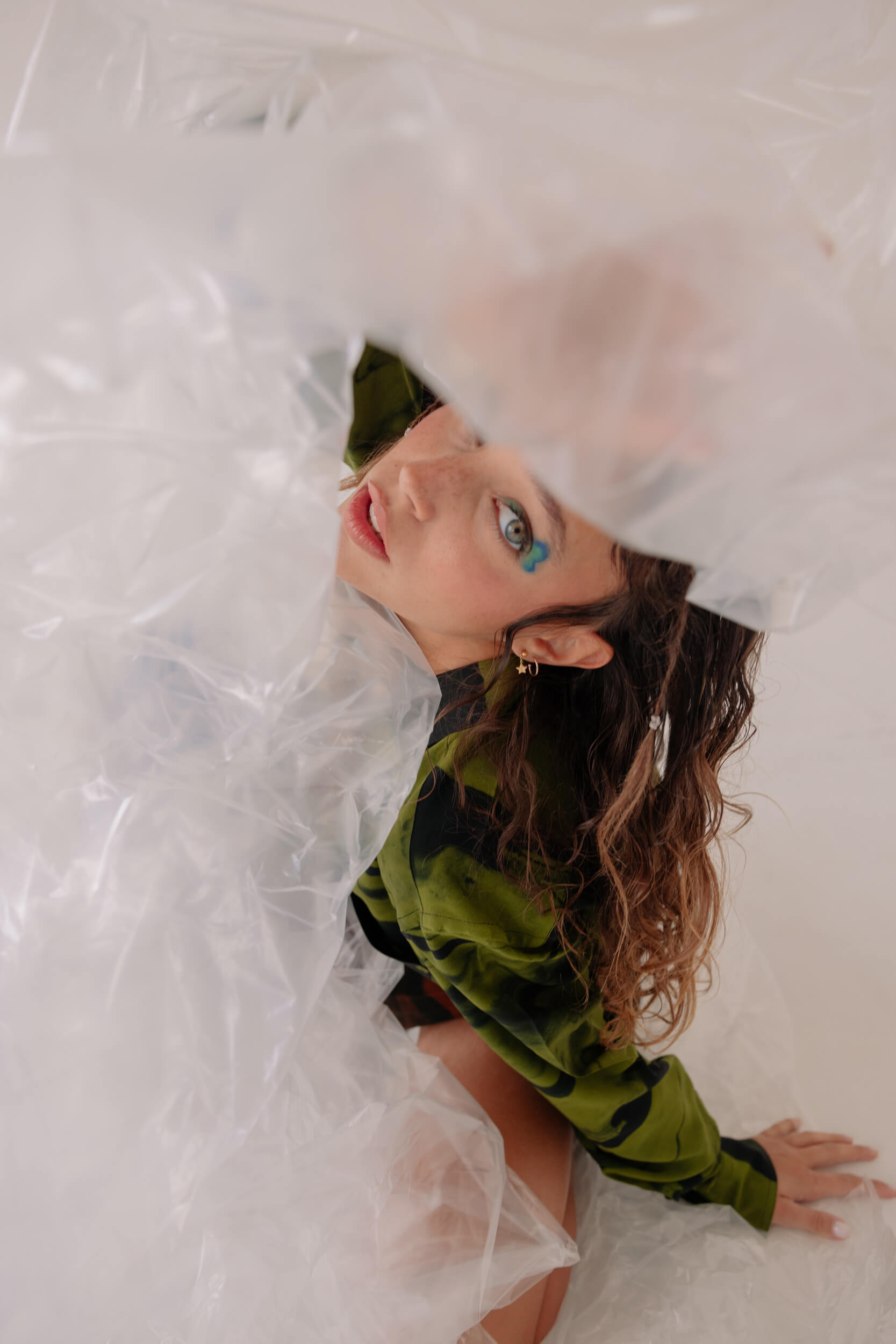
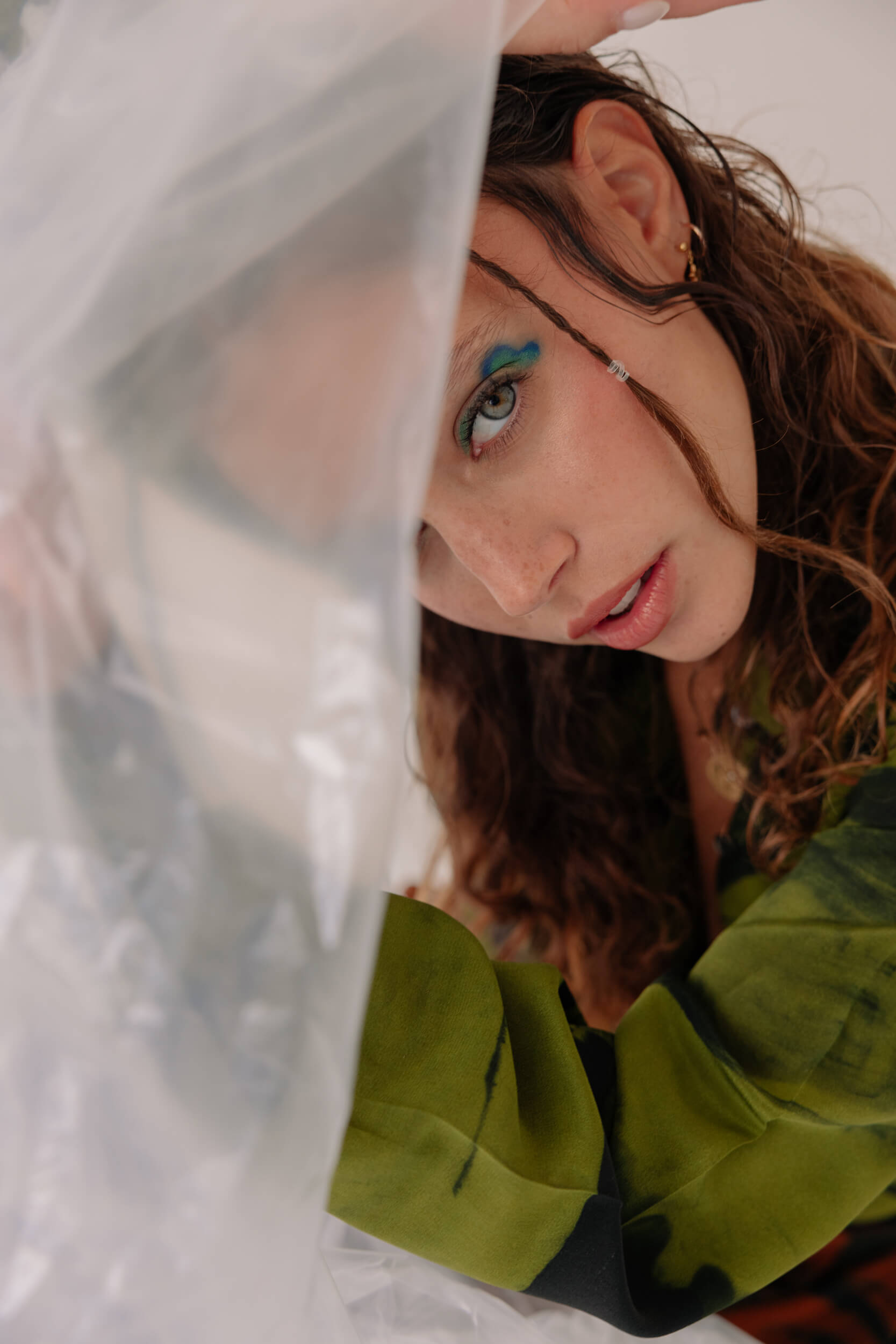
In fact, more than a lack of ambition, this thing you said underlines a huge sense of awareness, in the sense that you’re aware of the importance of work and, for this reason, you give it the right weight and importance, but at the same time, you know that there are other things beyond work that are equally or even more important than your job. Speaking of awareness, let’s talk about climate change and sustainable approaches. New generations are now dealing with issues that, today like never before, are really striking, and I’m mentioning new generations specifically because they’re the most aware of this problem as it concerns their future, first and foremost. What was the moment in which you understood you wanted to do something more?
Given that I always feel like what I do is never enough, I really wish I could do more, but there was actually never a day in which I woke up and realized I wanted to change things, I think it was a kind of sensitivity I’ve always had since I was a child. I remember fighting with my mom when she wanted me to wear a sheepskin jacket and I didn’t want to, recognizing that “I don’t want to because this is an animal”, even though no one had even told me that in order to make those kinds of clothes, animals get killed. So, I think it’s a matter of sensitivity. Obviously, education is really important as well. I didn’t have one concerning those issues, also because I’m from Tuscany, my grandma has been a meat seller up to last year, my family is omnivorous, but in spite of this, I’ve always had this need not to ignore this issue that has always touched me.
When I turned 16, I became vegan.
Now, after 10 years, I’m almost fully vegan, at home I only buy vegan food, and when I go out for dinner, maybe, I’m a bit more flexible, but I’m still very careful. So, basically, I’ve always been aware of climate change after all. Later on, with the passing of time, I tried and get more and more informed, and be more and more aware, maybe changing some habits of mine that I’d give for granted and that, growing up, I realized were impactful, instead; for example, buying clothes that I didn’t need but looked pretty and were cheap, which I learned to be very environmentally impactful because fast-fashion is not sustainable. I try to always learn new things and keep updated on these issues.
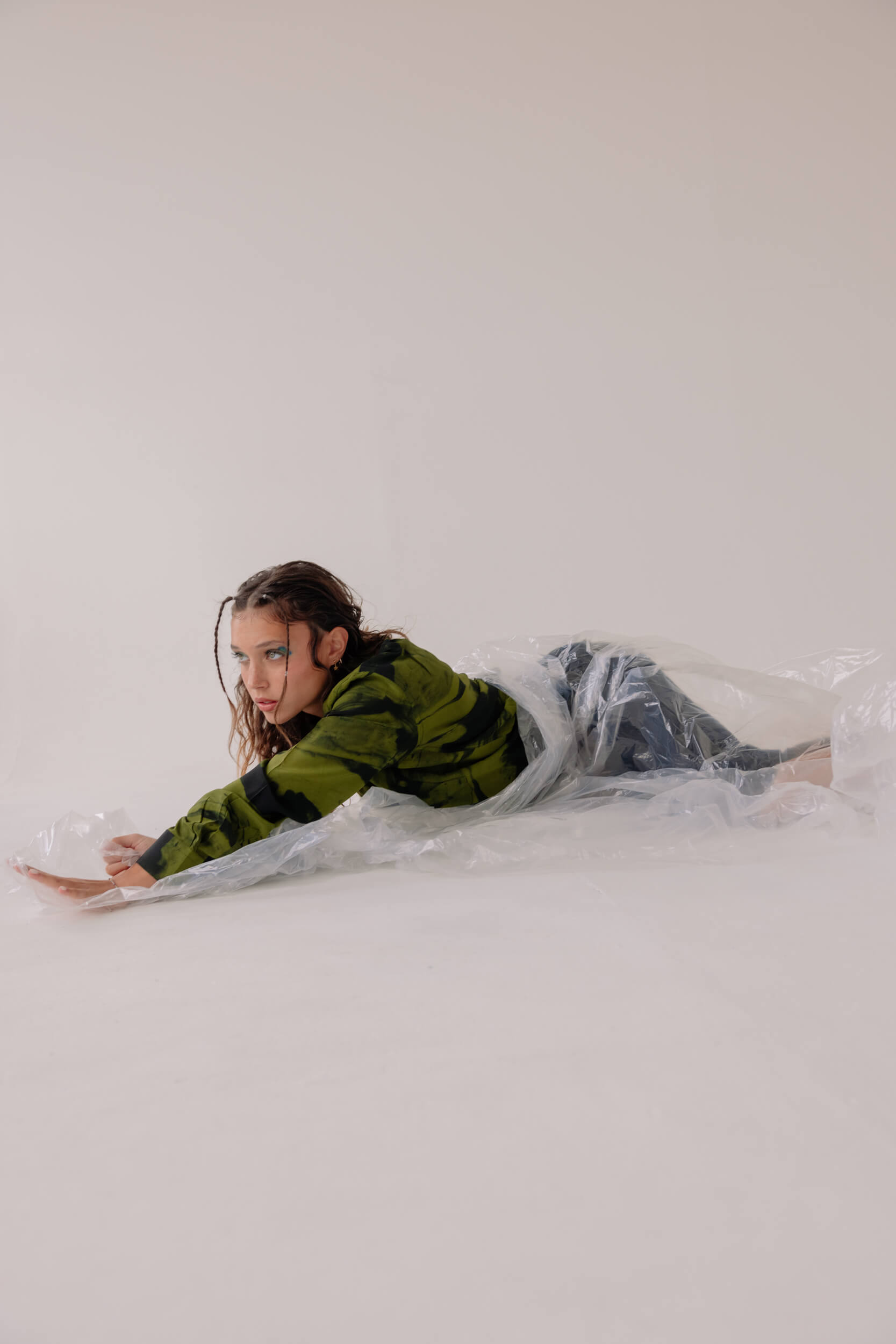
“So, basically, I’ve always been aware of climate change after all. Later on, with the passing of time, I tried and get more and more informed, and be more and more aware…”
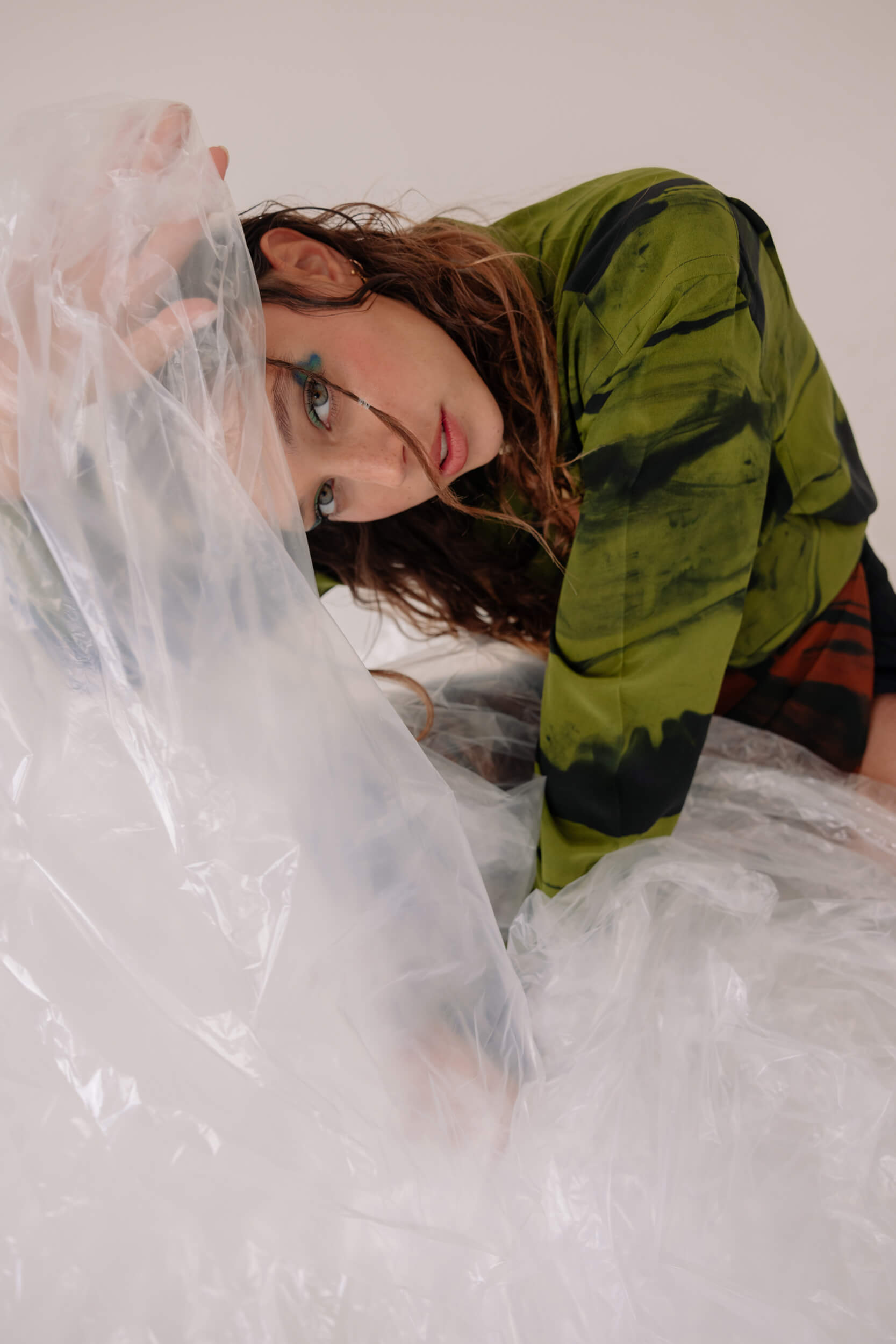
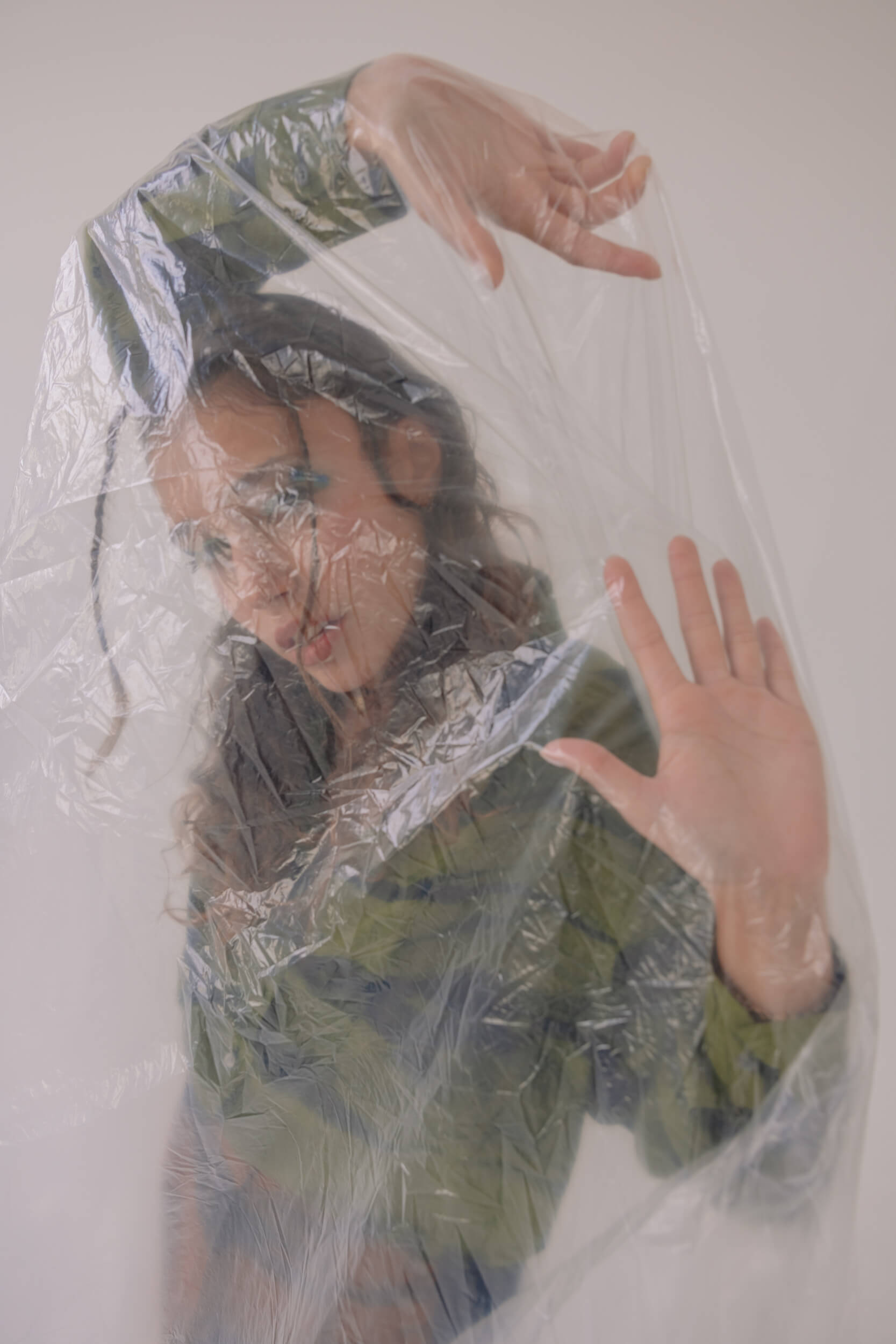
Also because this information is always changing and, luckily, it’s also constantly discussed, which means that at least we’re interested in focusing on the matter. Moreover, probably also because of the pandemic, a new phenomenon is born, especially among young people, called “eco-anxiety”: how do you face it?
It’s a tough one to face because sometimes, the more you try and read things to get informed, hoping that maybe it could be better than you thought, the more you realize that it’s so bad and we’re on the edge of a catastrophe. For example, this summer something terrible happened to me: I was in Carrara with my family and one day, after the middle of August, a sort of hurricane showed up, razing all trees, and a few people died too. It was quite traumatic and after that, now I really suffer from anxiety because I keep thinking that these phenomena that perhaps used to be rare a while ago, now will be ever more frequent and this is frustrating, every day I feel anxious because I don’t know how to face it. Maybe I try not to think about it and contribute in my own way, but as it’s just “my own small way”, sometimes I think:
what difference can I make?
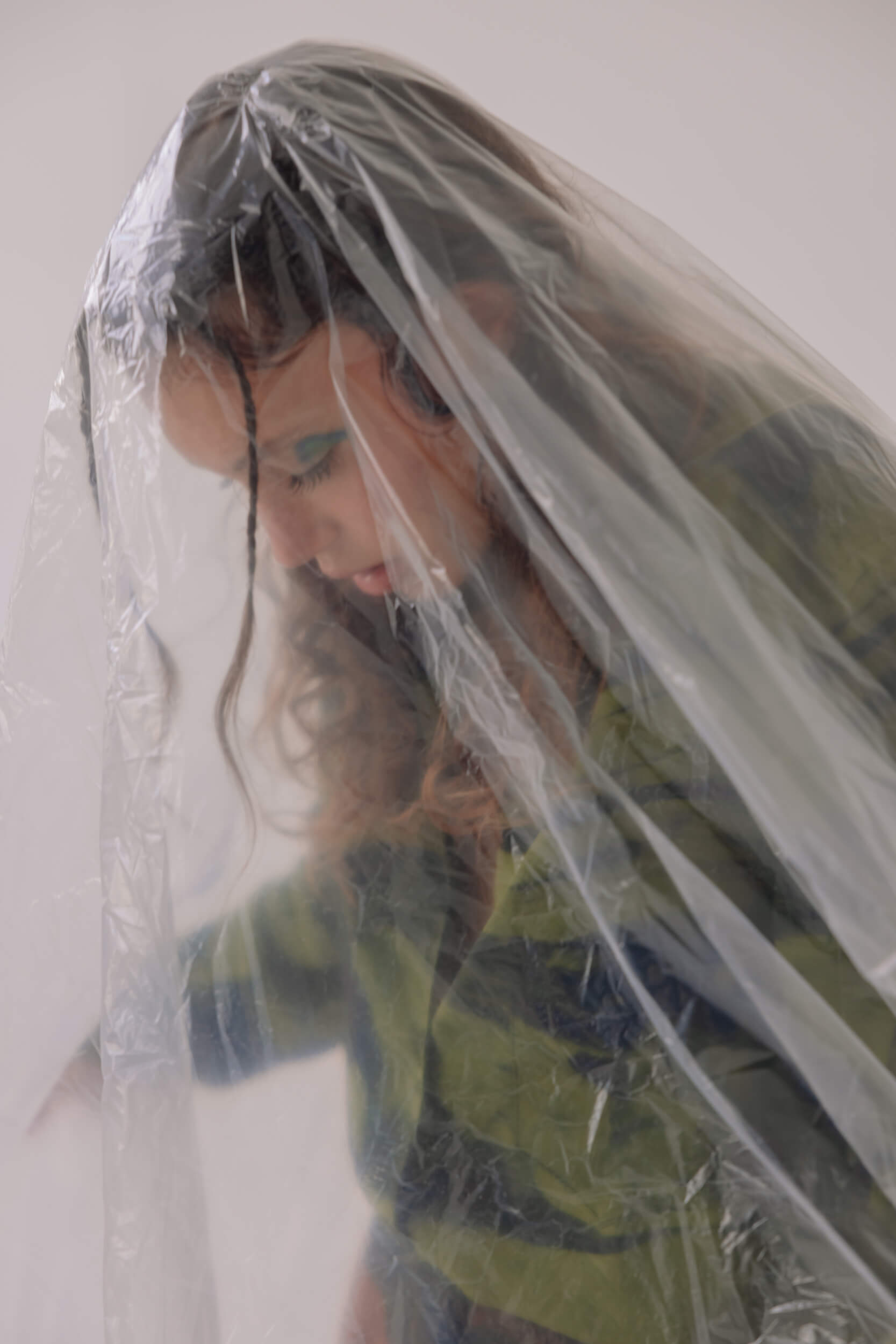
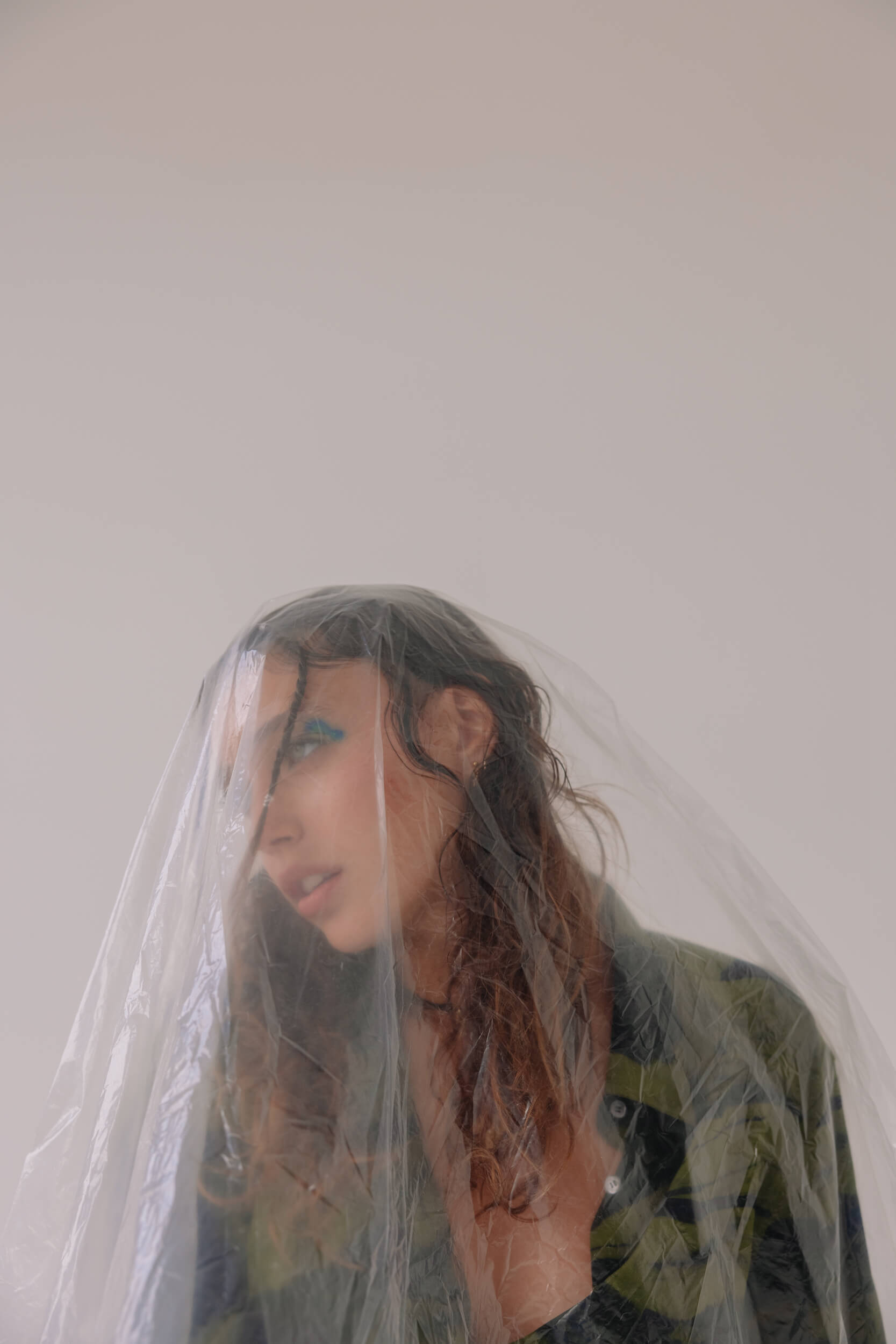
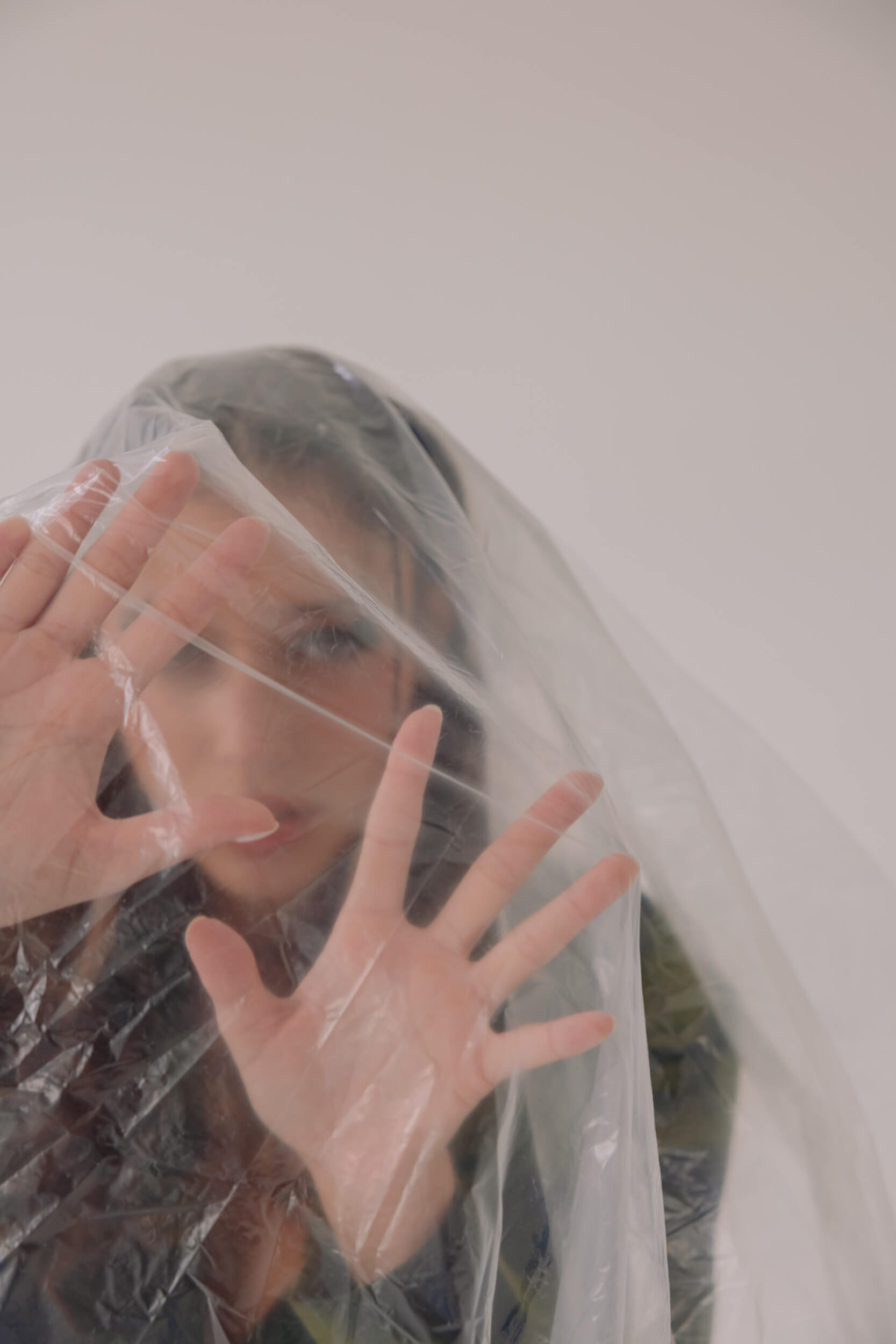
Sure, in order to fight climate change, we need the intervention of great political and social forces, but it’s also true that each of us, in our small part, can and should give their contribution so that this necessity becomes impellent and common, in order to start small, but big personal revolutions. What are the small, but big changes that you adopted to have a more sustainable lifestyle?
In my everyday life, actually, I’ve never started any revolutions but simply adopted a conscious lifestyle. For me, the small but big revolutions are, mostly, the times when I can get someone closer to my lifestyle, and to my consciousness; for example, one of my best friends has become a vegetarian; I don’t know if it’s thanks to me, but I think I’ve still been a part of her journey, in that sense; my brother, who’s always been a great meat eater, now has given himself a monthly bonus to eat it; my boyfriend, when he’s with me, only eats what I eat, so vegetarian-vegan food. This, for me, is a small but big revolution, to be able to raise awareness. According to my personal experience, the most aggressive methods have never benefitted the case, in fact, I’ve always managed to change people’s minds by simply explaining my point of view.
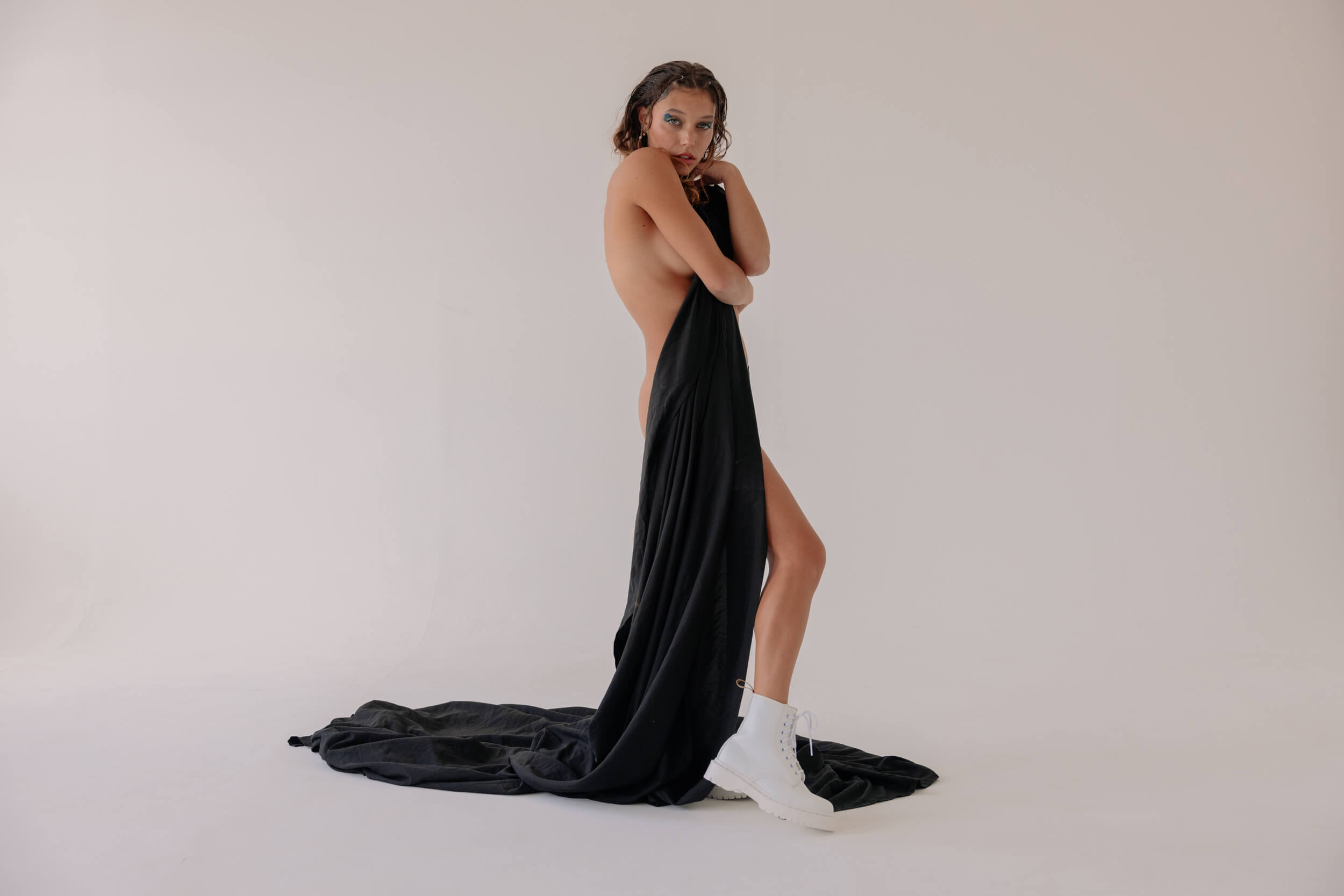
“Raise awareness”
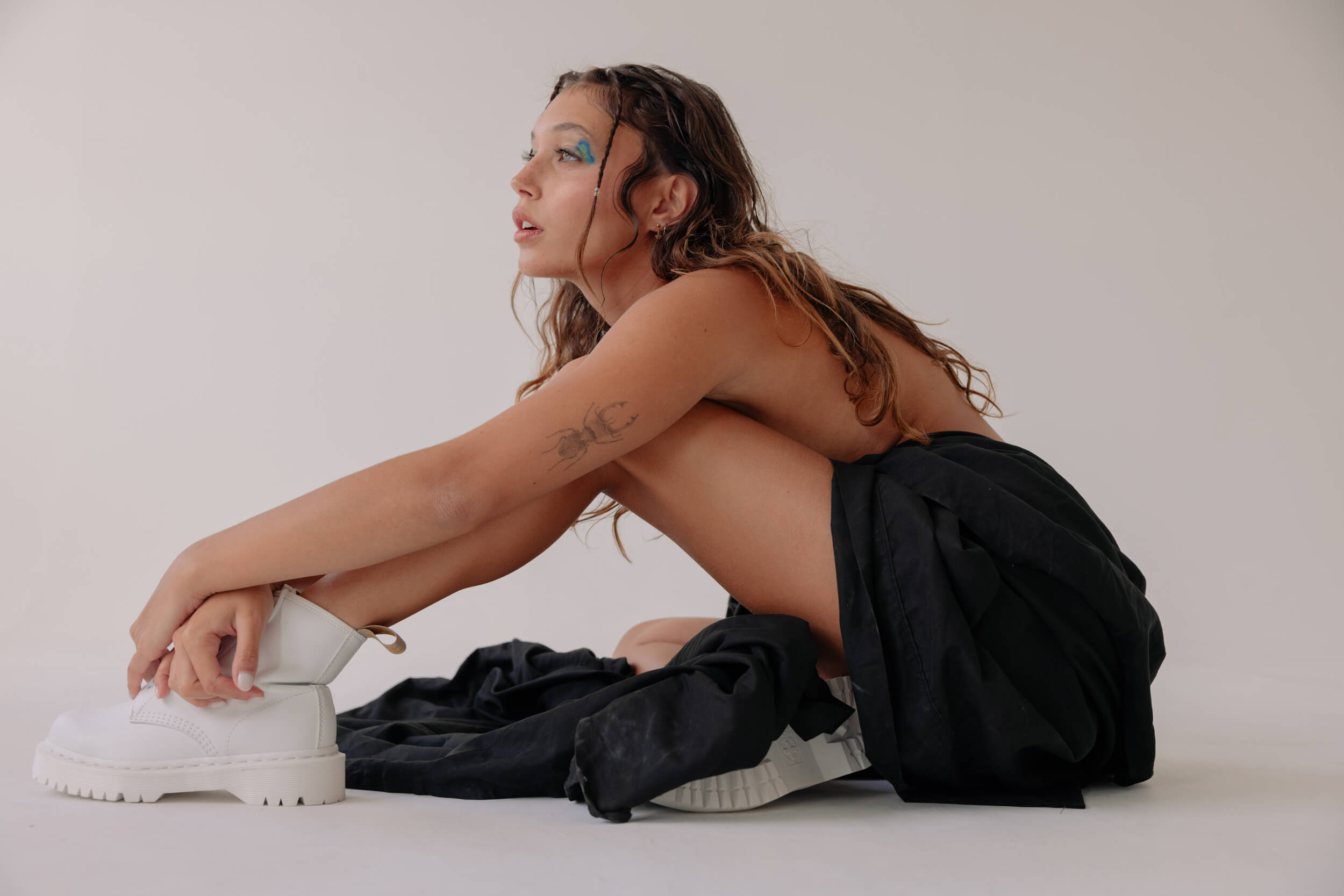
Going back to what you said before about fashion, we all know that this very sector is one of the most polluting ever, and phenomena such as fast fashion and greenwashing are now, unfortunately, commonplace. On the other hand, there’s an increasing interest in reselling, vintage, and the creative reuse of garments and items to generate less waste. What kind of advice would you give, based on your experience, in order to have a more conscious point of view on life, in general, but also on clothing?
I certainly think that the first thing we should ask ourselves is: do I really need what I’m buying? This is the very first question we should ask ourselves when we tend to compulsively put items in our carts.
This happens especially online because there you can’t really control how many things you select and end up buying all sorts of things. The second question might be: this thing I want to buy, can I find it second-handed? For example, I almost exclusively buy vintage now, except for some things that I can’t find second-hand in my size. Branded vintage sometimes is crazy expensive, but second-hand stores or flea markets sell affordable products, we should simply get used to the idea that if we buy cheap stuff, it probably means that workers were paid little money, as well as the material used, so it means that we’re paying little money but to the disadvantage of someone or something else; so, maybe, we’d better buy less and spend more, finding a balance. What matters is buying what we actually need and, if we all did it, maybe fast fashion wouldn’t even exist.
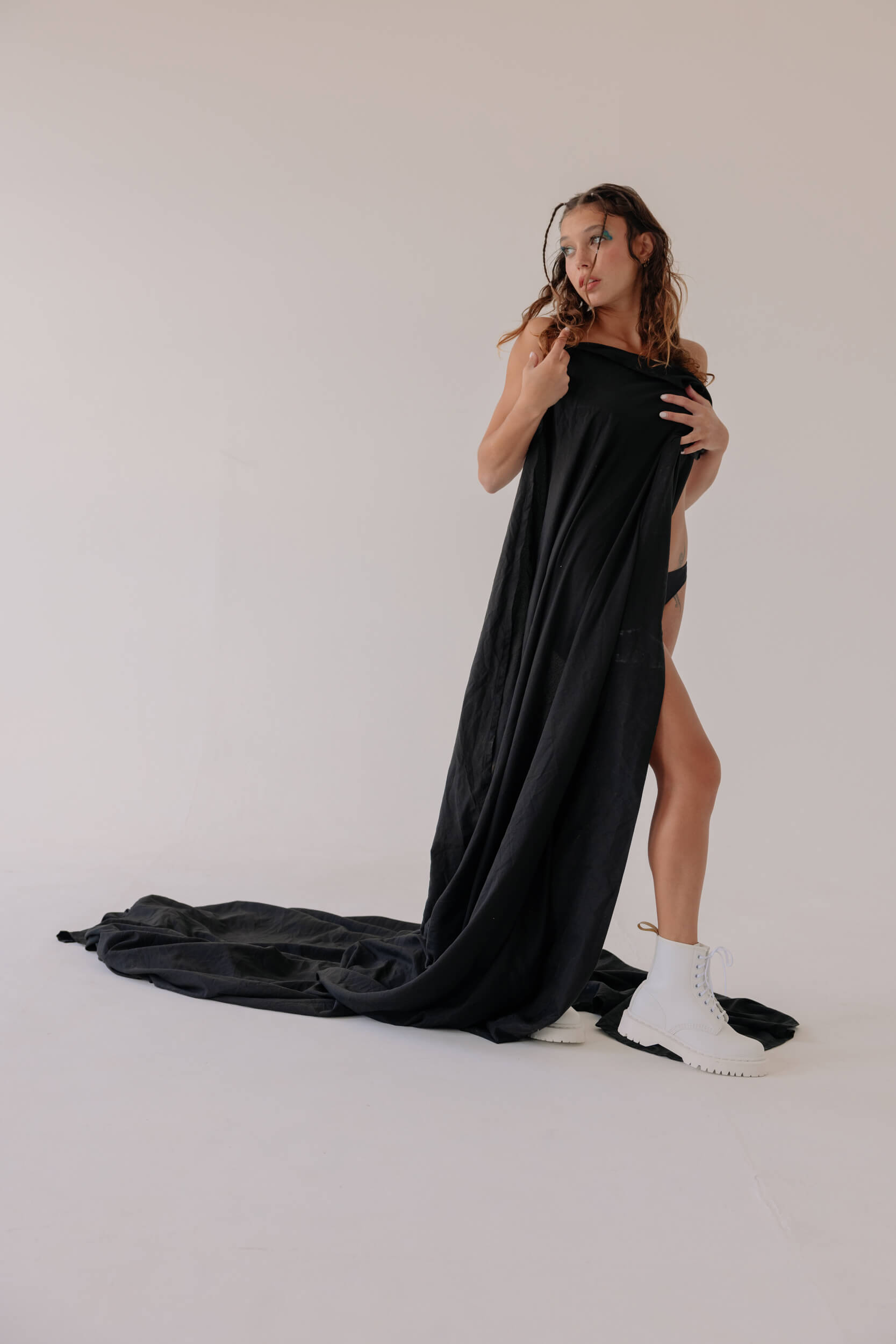
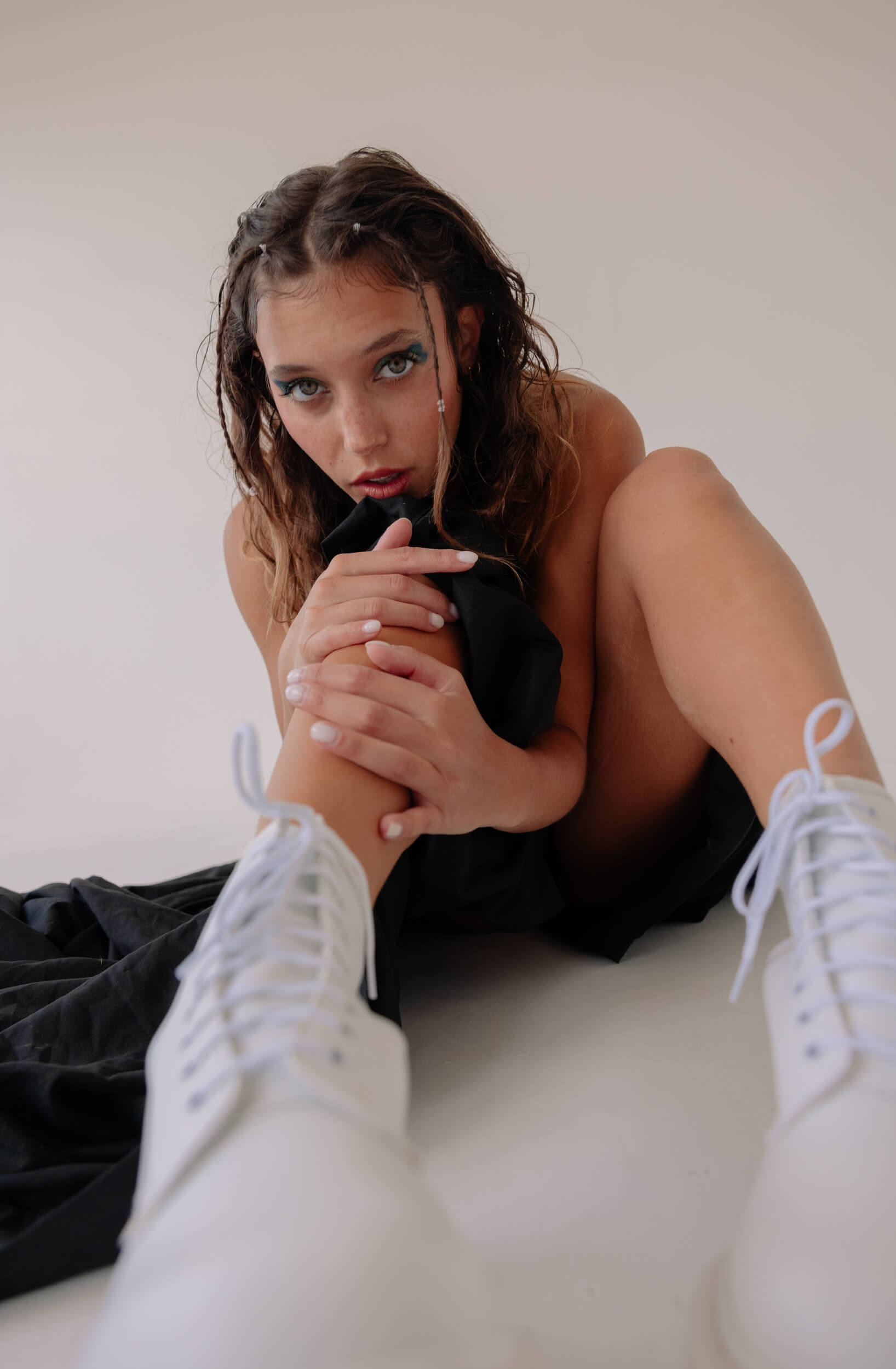
Sure. Speaking of which, what are the projects, brands, or sustainable businesses you’re particularly fond of?
As I said, I almost exclusively buy vintage clothes, and by now, if I buy things that are not vintage, they’re pole dance items, so I get them from small businesses and startups that sell made-to-order stuff, which is the reason why I don’t even feel guilty for buying them.
I certainly believe that Gilberto Calzolari, whose clothes I’ve worn for this photo shoot, is a brilliant designer; I met him during the Venice Film Festival: I was looking for the perfect outfit and went to his showroom and I loved it all, both his policy and sensitivity and, of course, his style.
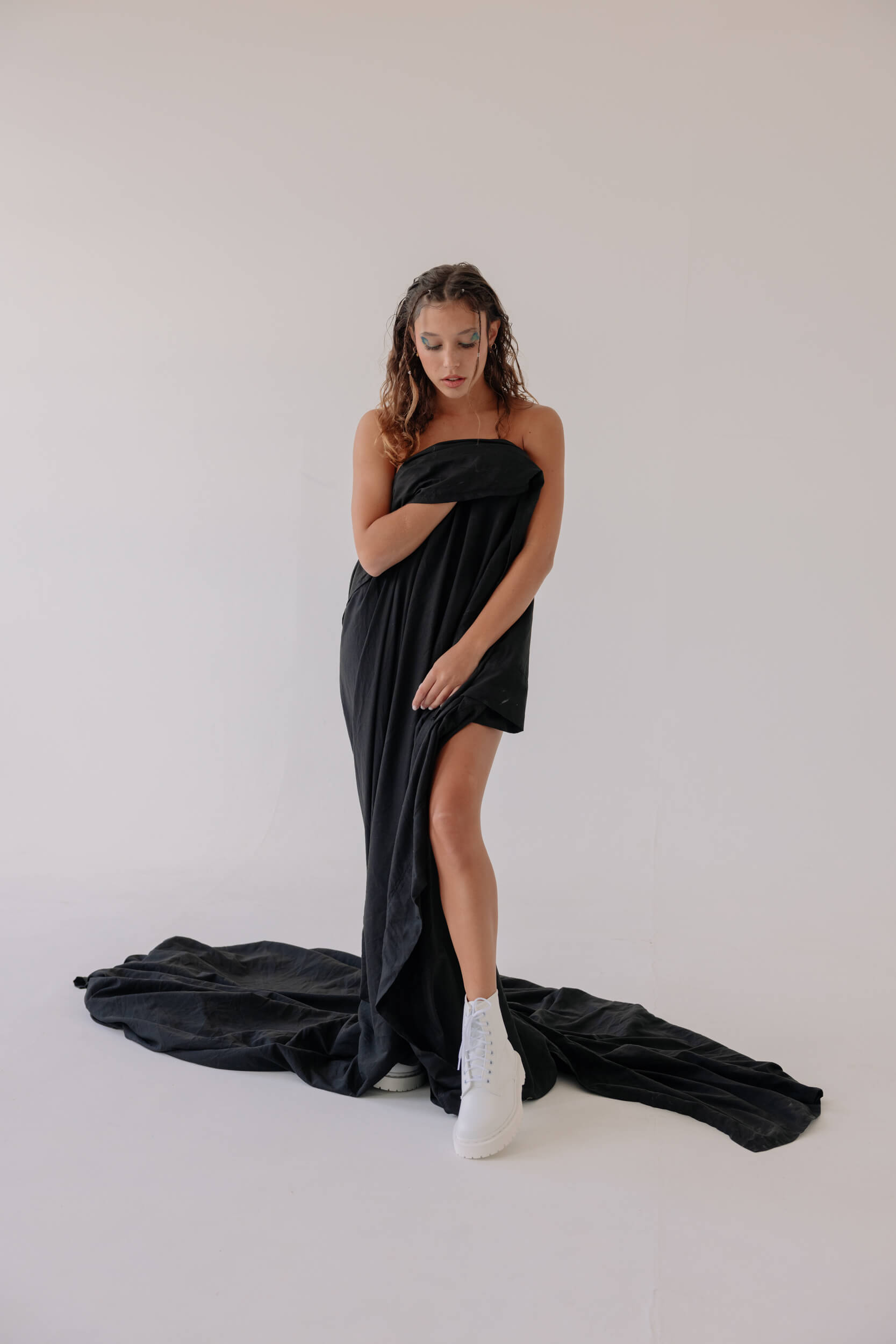
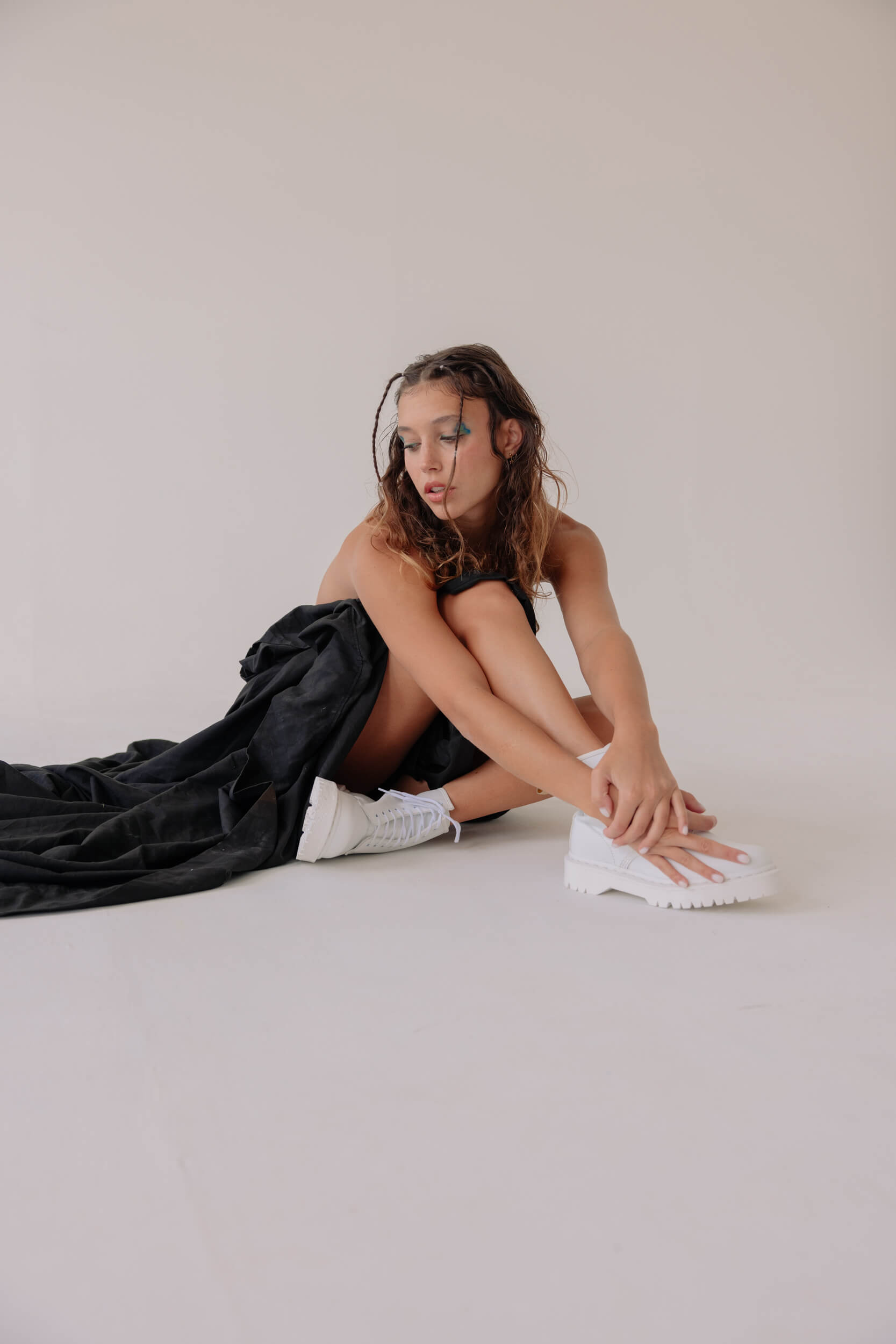
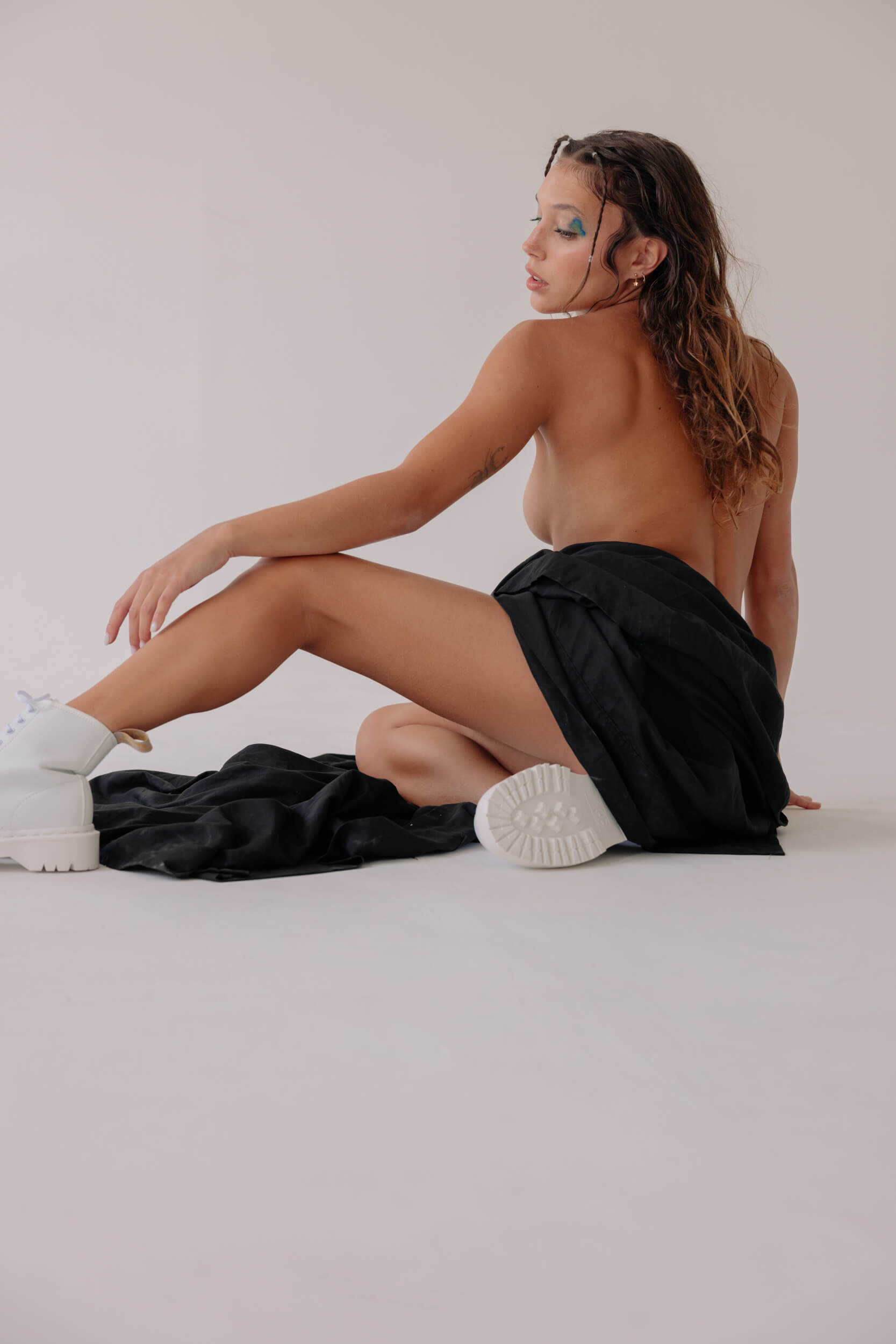
What’s the latest thing you’ve discovered about yourself?
You kind of discover new things about yourself on a daily basis. If I think of important stuff, I discovered that I have more willpower than I thought, and I realized it with the sport I started practicing about a year ago, pole dance, which made me understand how much strength I have in general, both physically and mentally, I found that I’m stronger than I thought. It’s been a nice discovery, in the sense that it helped a lot, together with psychotherapy. Anyway, pole dance has been, if not the main form of therapy, as helpful as psychological therapy for me.
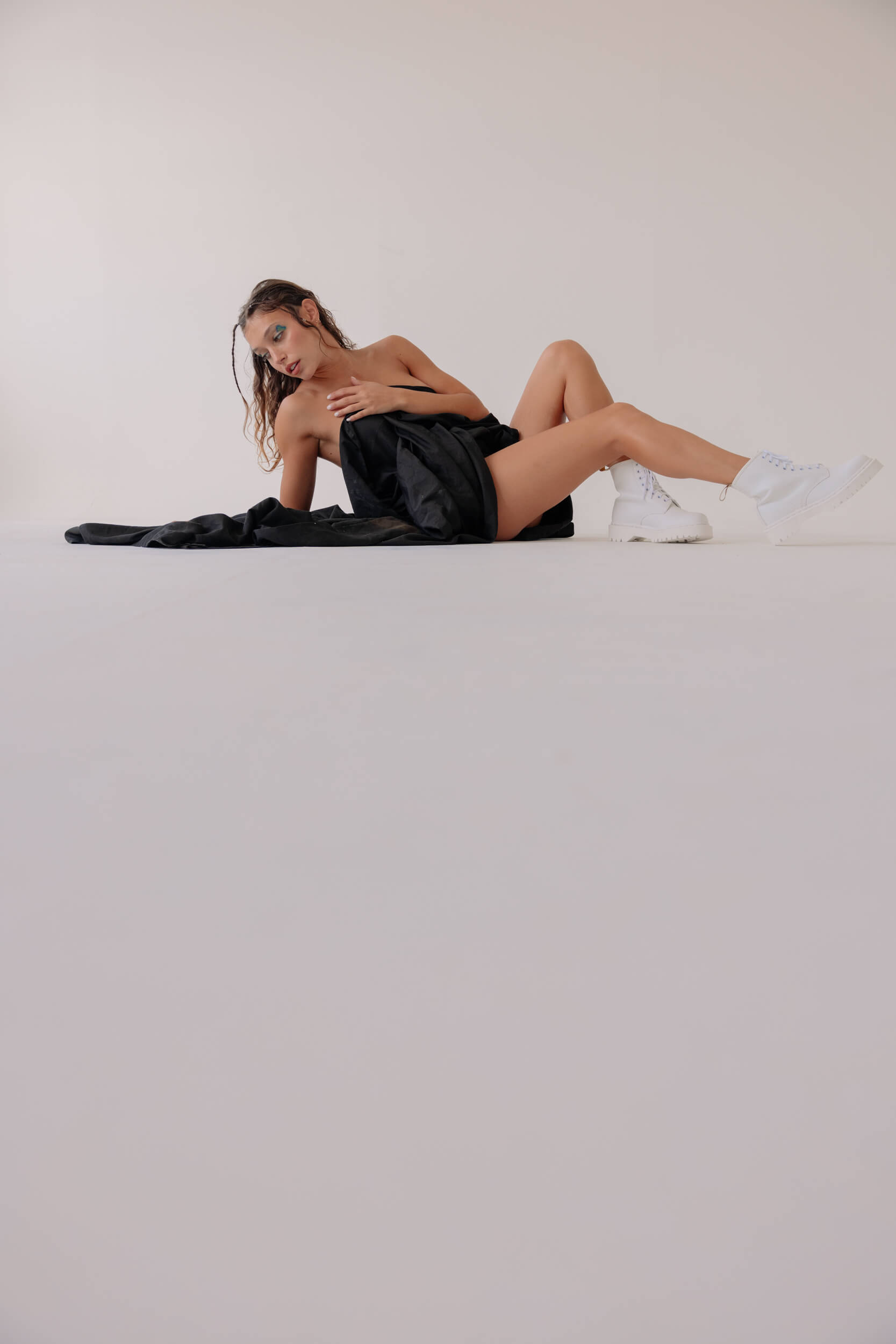
“I discovered that I have more willpower than I thought, and I realized it with the sport I started practicing about a year ago, pole dance…”
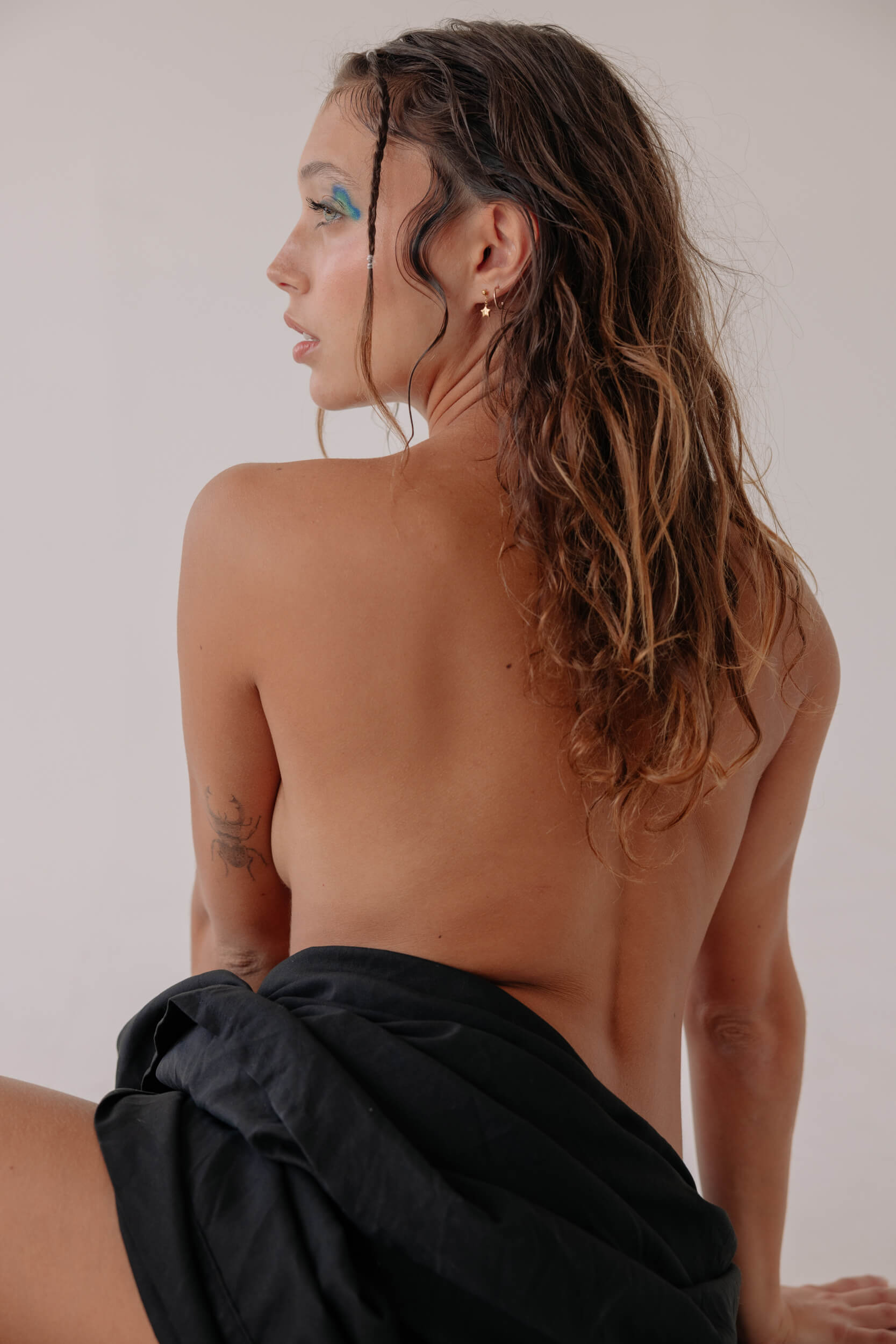
In fact, one of your Instagram posts’ captions says: “Ever since I’ve been practicing pole dance, I love myself more”. Also given this strong sports-lover side of you, what does it mean to feel comfortable in your own skin?
It’s complicated, in the sense that it’s not an ongoing feeling, but it’s an up-and-down thing. However, I learned that to feel comfortable in my own skin is basically something that needs to be separated from aesthetics: it doesn’t mean to feel comfortable with the way I look, but it’s when I’m in full control of my body when I feel strong and healthy in my body.
Which is a kind of awareness that’s maybe hard to get…
Yes, and this is why it’s not an ongoing feeling, it’s really like roller coasters, but I’ve got to say that, sometimes, the swinging can also be less disrupting.
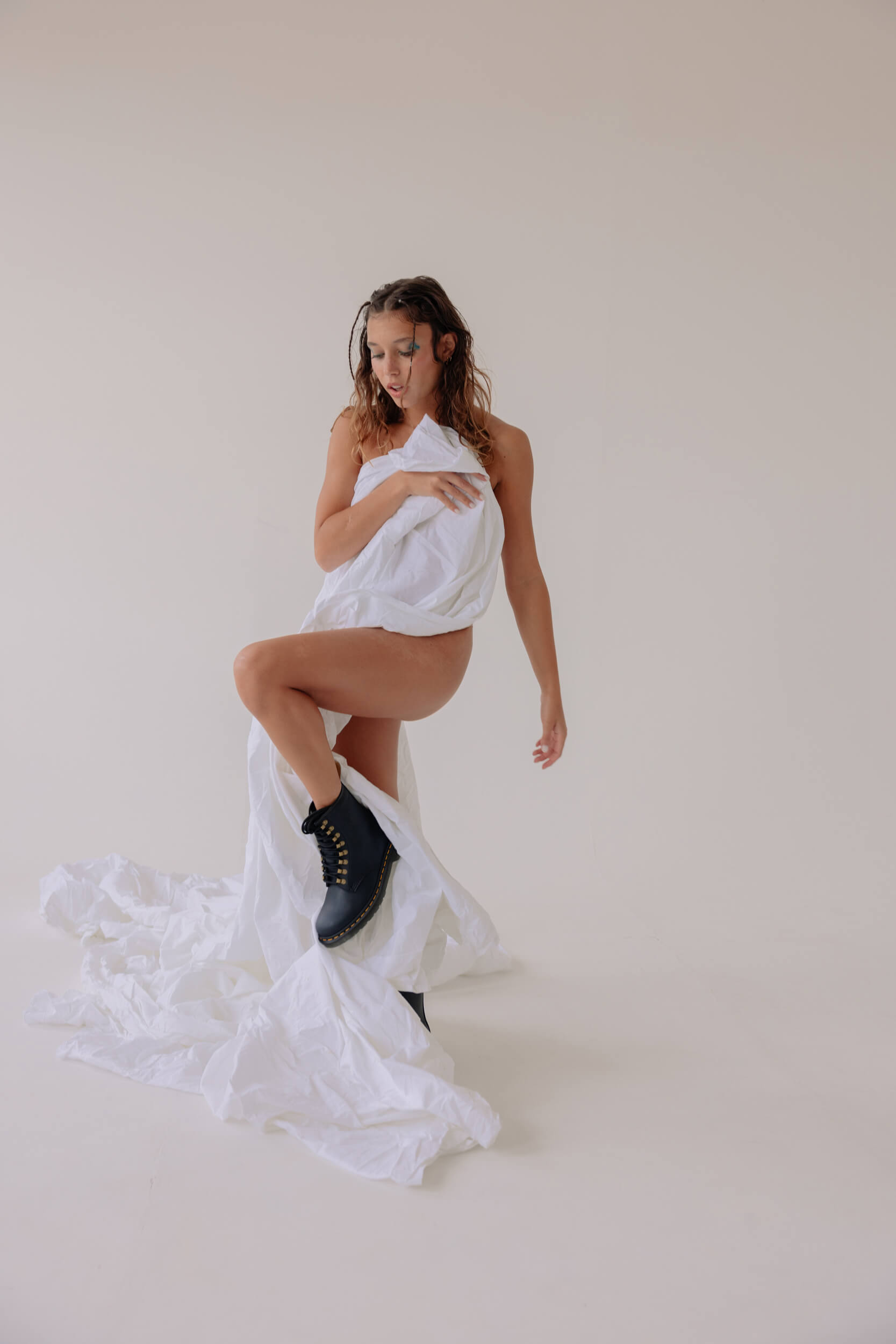
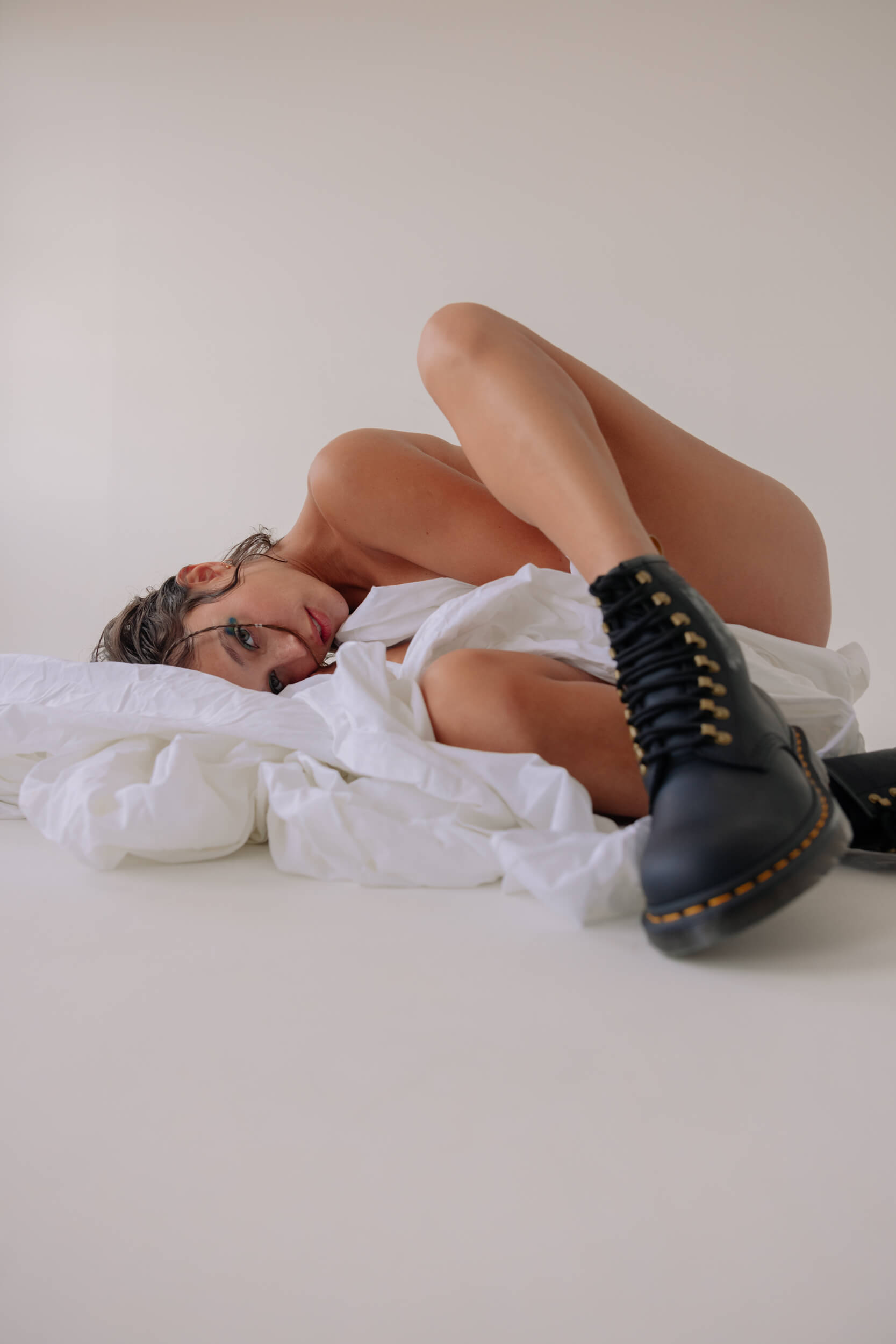
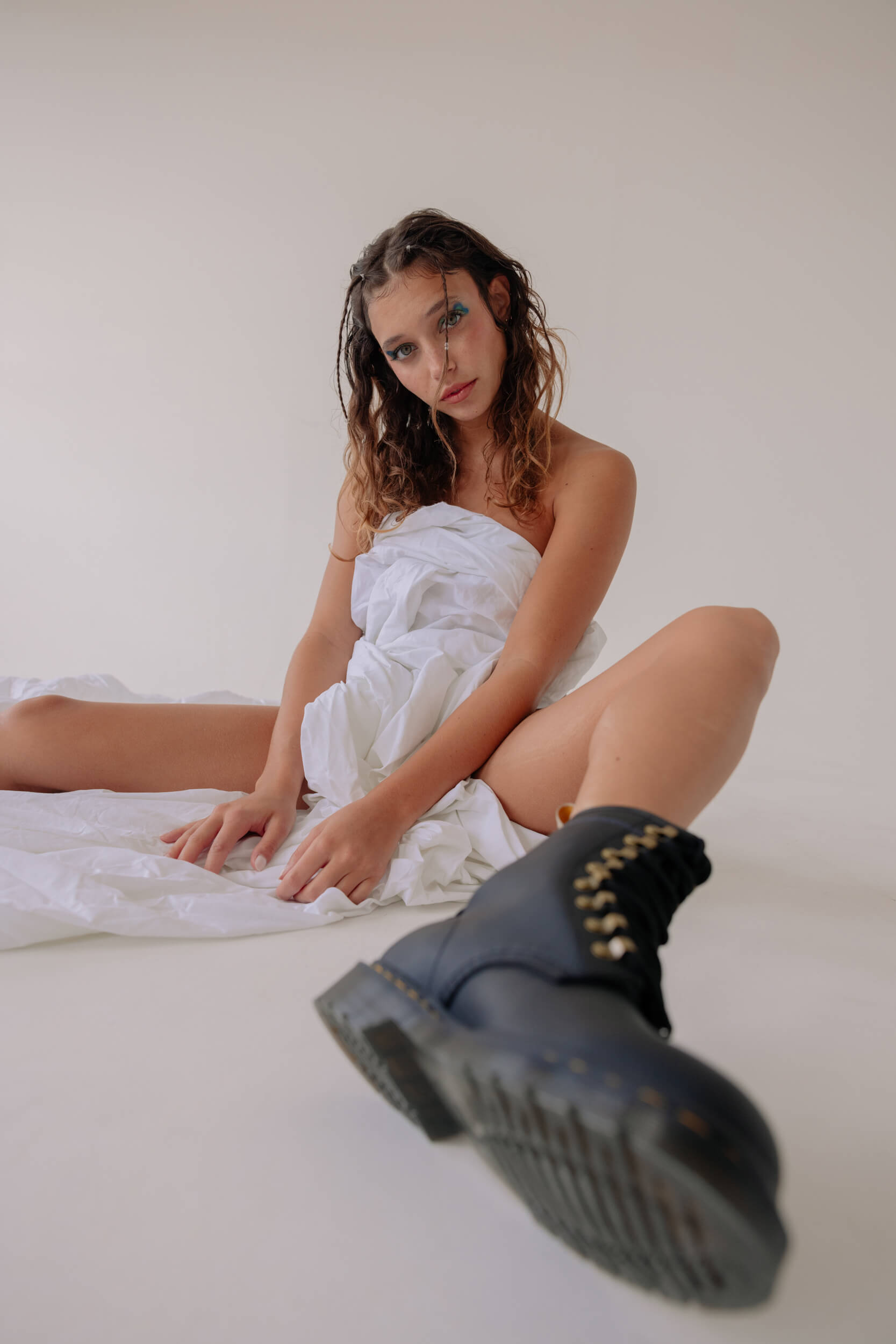
You use social media to speak about body neutrality, as well: how do you approach this subject in a world like the social media one, which is dominated by the concepts of “appearing” and “showing”, and so it almost seems to somehow amplify the fears related to self-awareness?
To be honest, my relationship with social media is weird, in the sense that on one hand, I don’t feel like using them anymore for this reason, because there’s so much desire to necessarily appear in a certain way. Sometimes, social media deliver wrong messages, that often aren’t even consciously, or willingly delivered, but on social media, we’re harassed by pieces of information that sometimes, even though we don’t realize it, unconsciously hurt us. For this reason, I try and spend as less time as possible on there, and only follow things that distract me or enrich me – like feeds posting pictures of puppy dogs and cats [luaghs], or news and scientific pages. I’ve learned a lot about sustainability from social media, I follow lots of pole dancers, so, for me, they’re a continuous source of inspiration and I think that’s what social media should be used for.
On social media, I almost feel like it’s my duty (but it’s also a pleasure) to try and send positive messages. When I post a video where I pole dance, I like to show my progress, and not to show how good I am at it, but because often, when I find girls on social media who are practicing something that perhaps they’ve just started practicing, I’m encouraged by the thought that maybe we’re not all born skilled and there’s always a journey behind it, and it’s nice to realize this also by looking at someone else. Then, when I film my own videos, it’s one of the few moments where I don’t care if I look bloated, if I have cellulitis, or a posture I don’t like: when I post a video where I pole dance, I like to show my execution, improvement, progress, the effort I put in it, I don’t even look at those things anymore because I don’t care about them anymore.
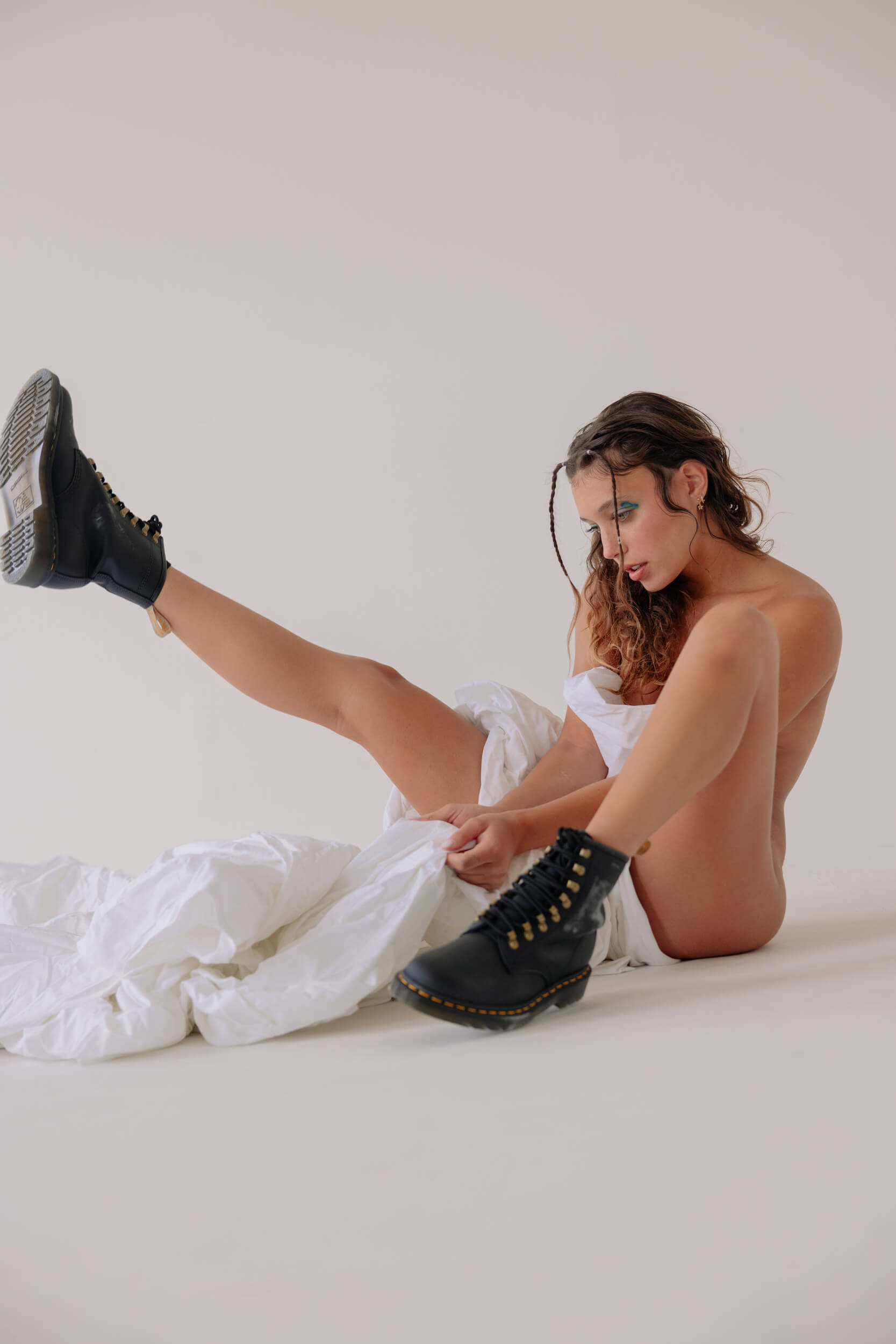
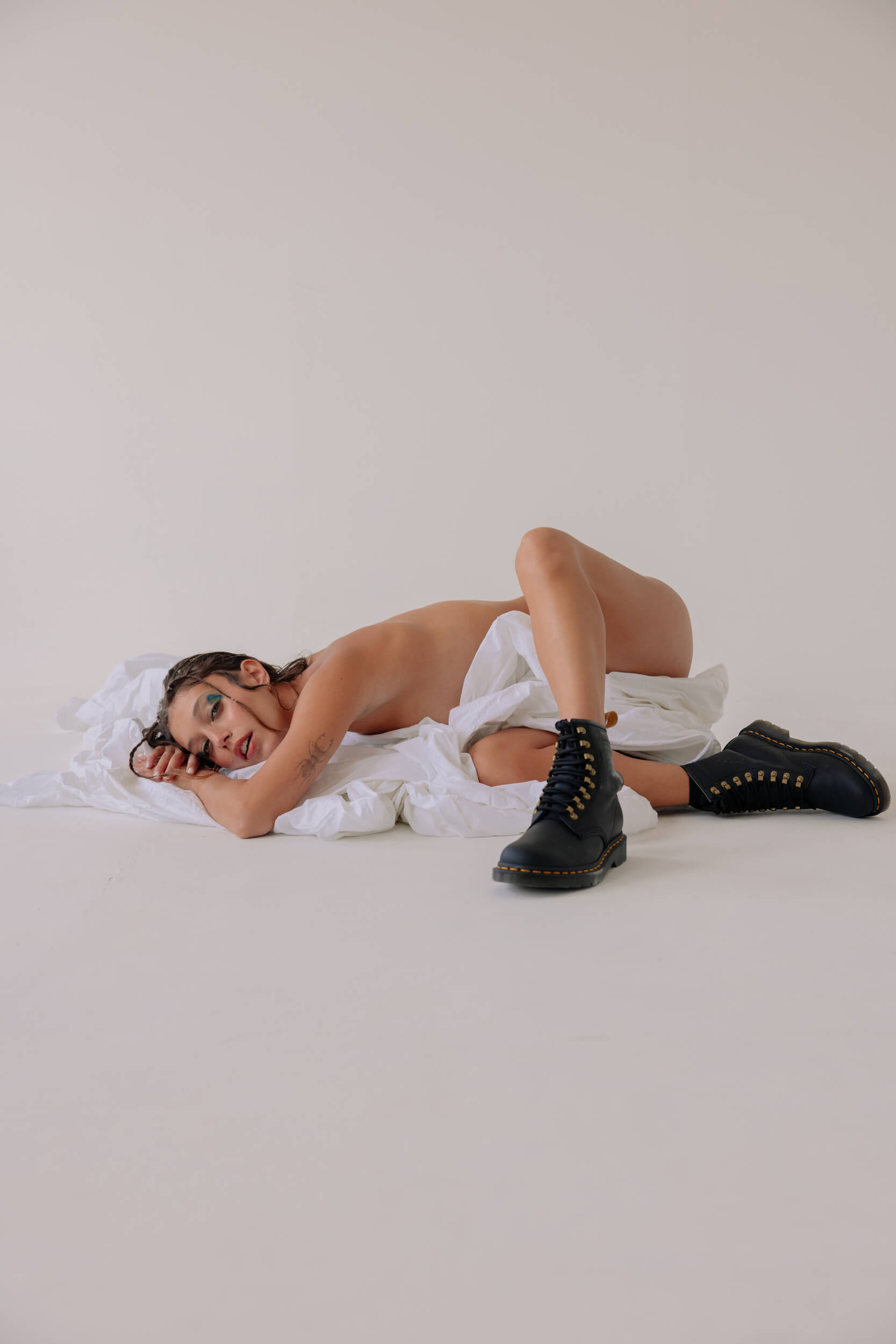
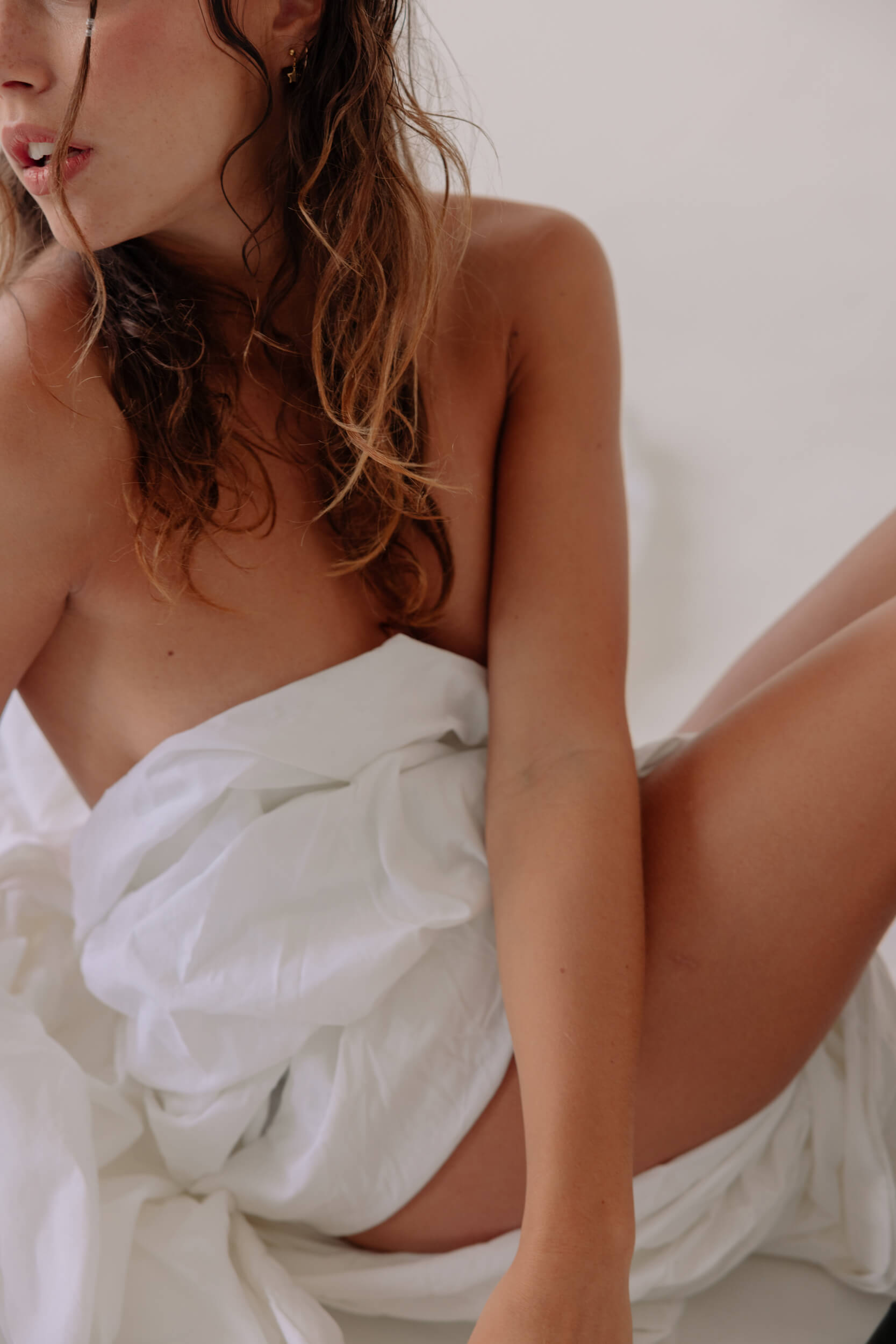
What’s the bravest thing you’ve ever done?
I wouldn’t want to convey a message like “it takes a lot of courage, it’s a hard thing to do”, but in my case, it was to start going to therapy. In the beginning, I was scared to do it, but not because I wouldn’t believe in psychotherapy; in fact, I’d already gone a few years ago, but that was a period in which I didn’t feel well and struggled to open up, I was scared that if I opened up, Pandora’s box would have opened up too. Later on, thanks to someone called Martina, my first pole dancer teacher, I found that I had the courage to take control of the situation and say, “no, all right, it’s time to work on myself, it’s time to start this journey and do some good to myself”. That, for me, was an act of courage.
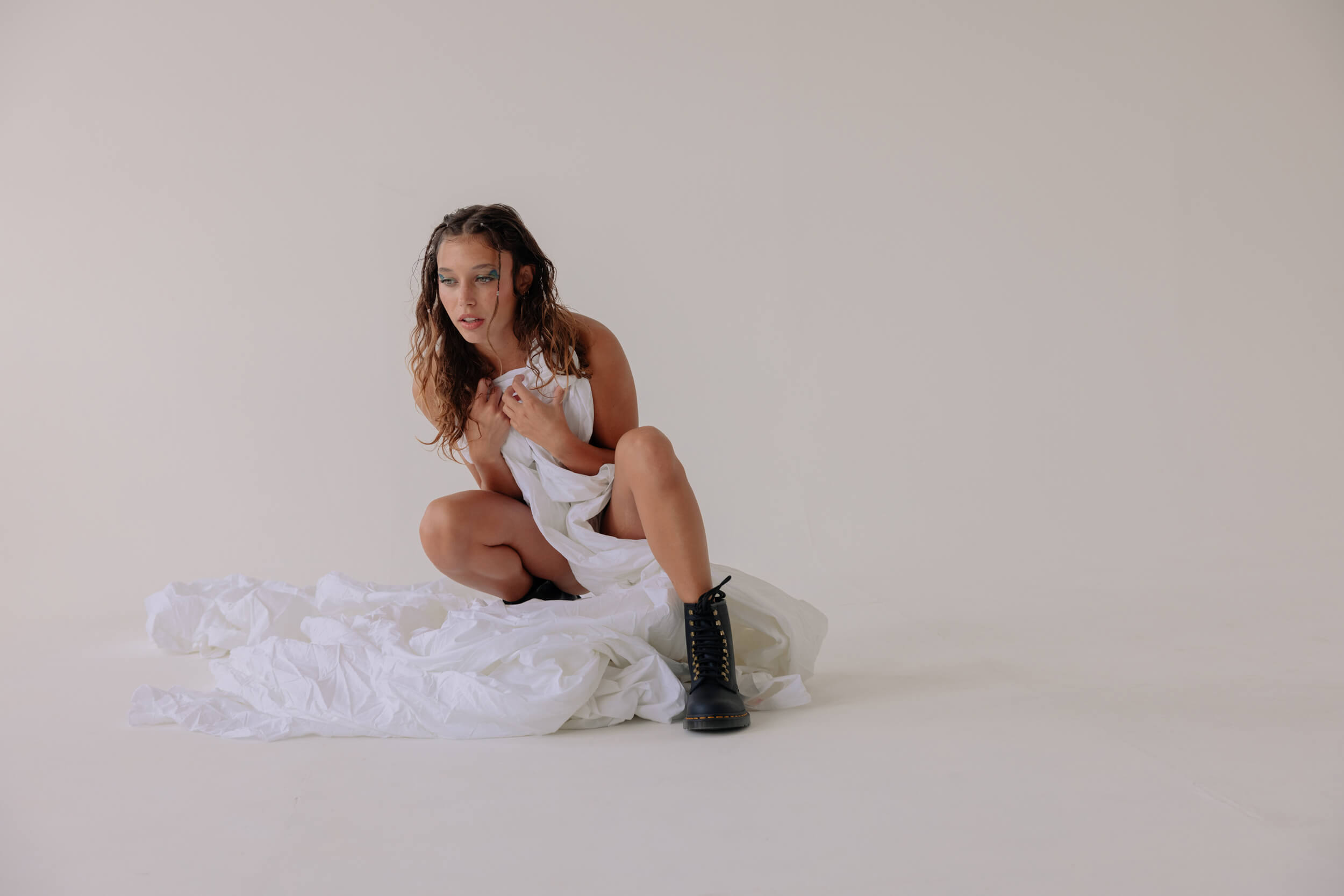
“It’s time to work on myself.“
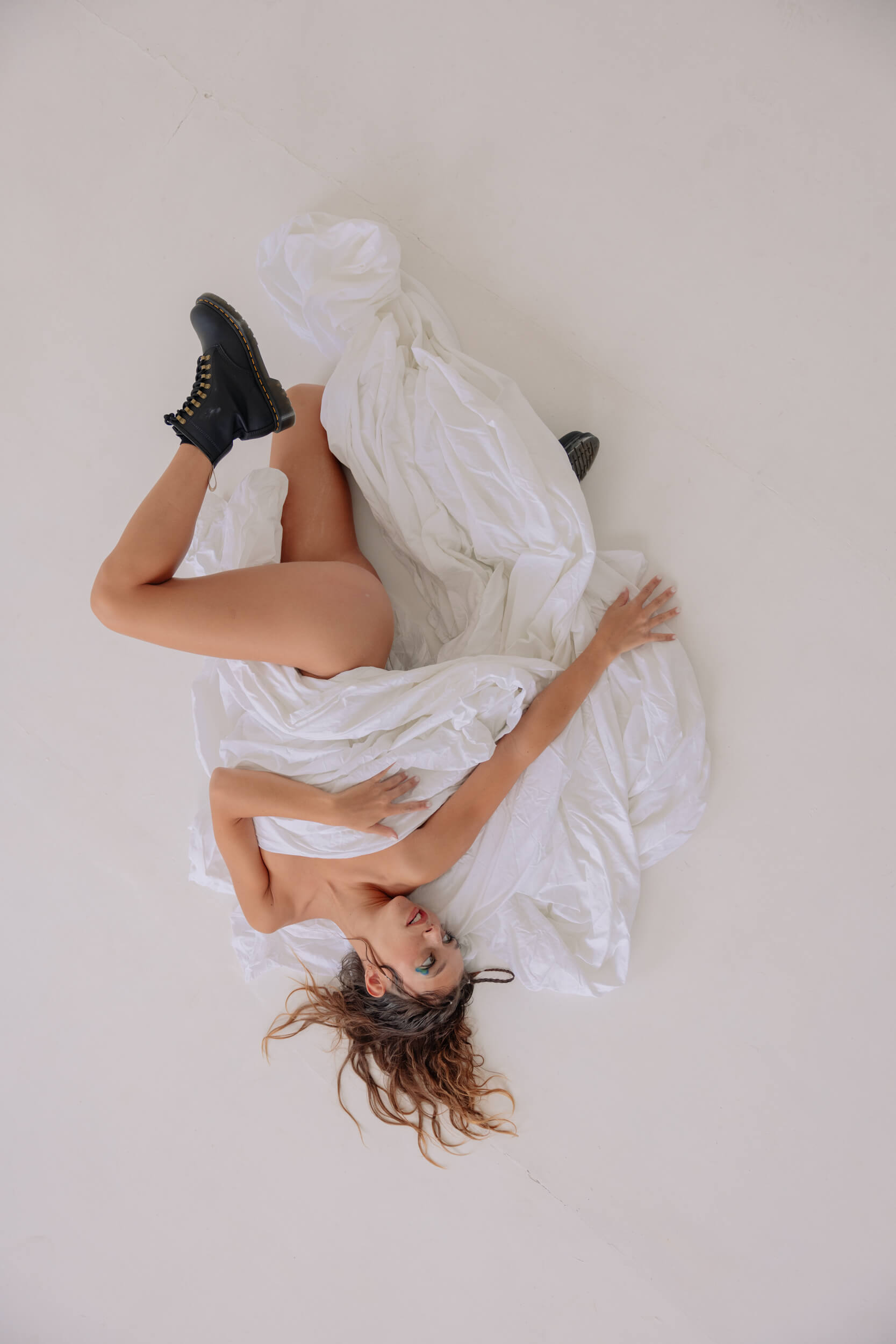
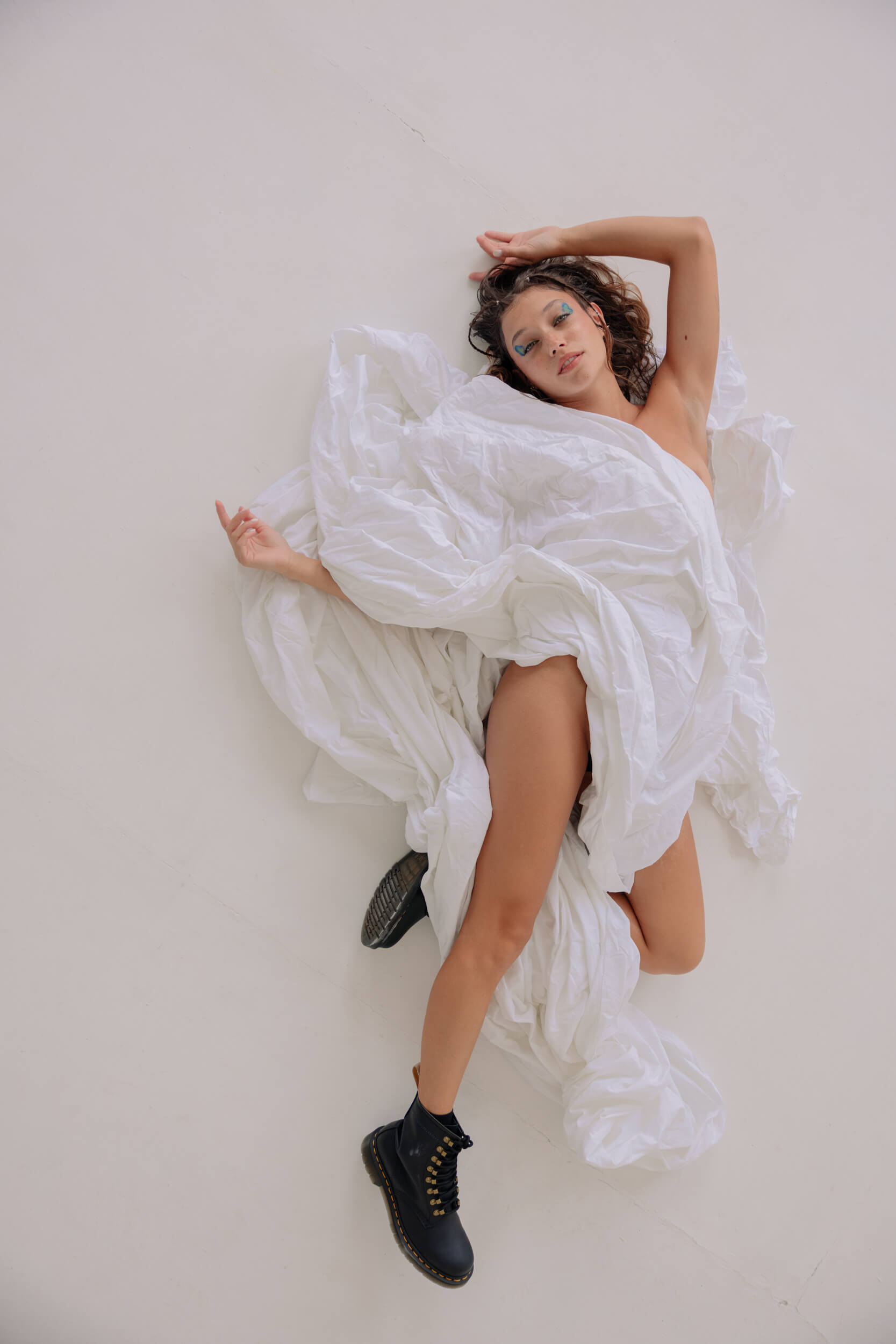
What are you scared of instead?
So many things! [laughs] Every day I develop new phobias. Especially in this election-times, anxiety is at the stars because I fear we’re heading back to the Middle Ages, we will be denied our right to abortion, and stuff like that.
One of my most recurrent fears is that one day I wish to have a child but the terror to bring them into this world prevents me from doing it because everyone couldn’t care less about the climate crisis, and it looks like politicians couldn’t care less about new generations, and because maybe my country will never allow me to have a high enough income to be able to peacefully afford a child.
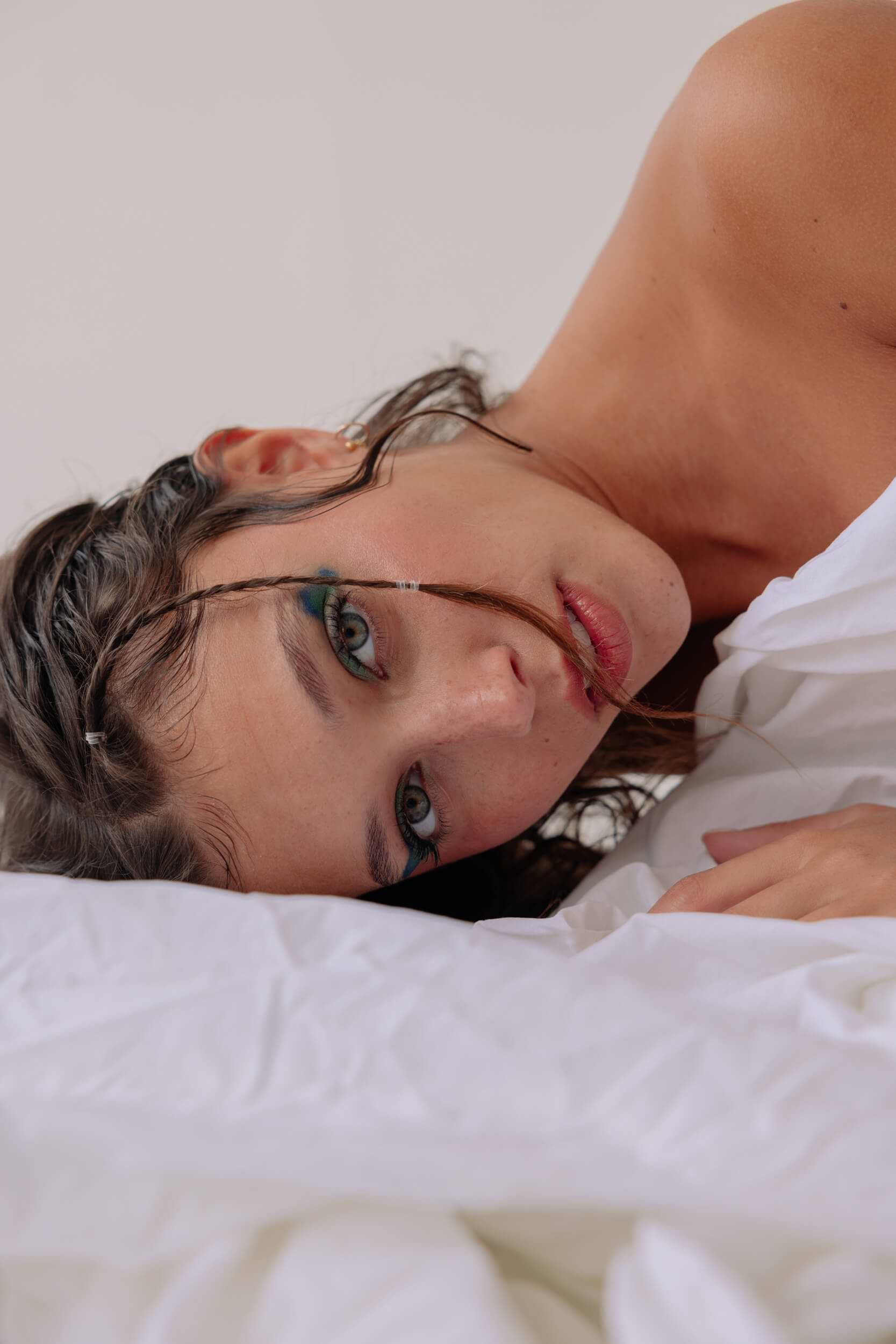
What was, instead, your biggest act of rebellion?
I unbaptized myself!
I unbaptized myself because I’m an atheist and I’m against the Church and everything that the Church does. It’s always driven me mad that the Church has always made a wrong count on its believers. For example, I know very few people who are true believers, catholic, part of that count. Maybe it’s my social bubble, maybe it’s a characteristic of my own generation, but the fact that we keep being baptized and so included in this count because of tradition, culture, to please our grandparents but against our will, because I can know my will only when I’m sentient, and not when I’m a newborn.
So, things never change, and the Church keeps feeling legitimized to put its nose in the business of the State, like abortion and equalitarian marriage.
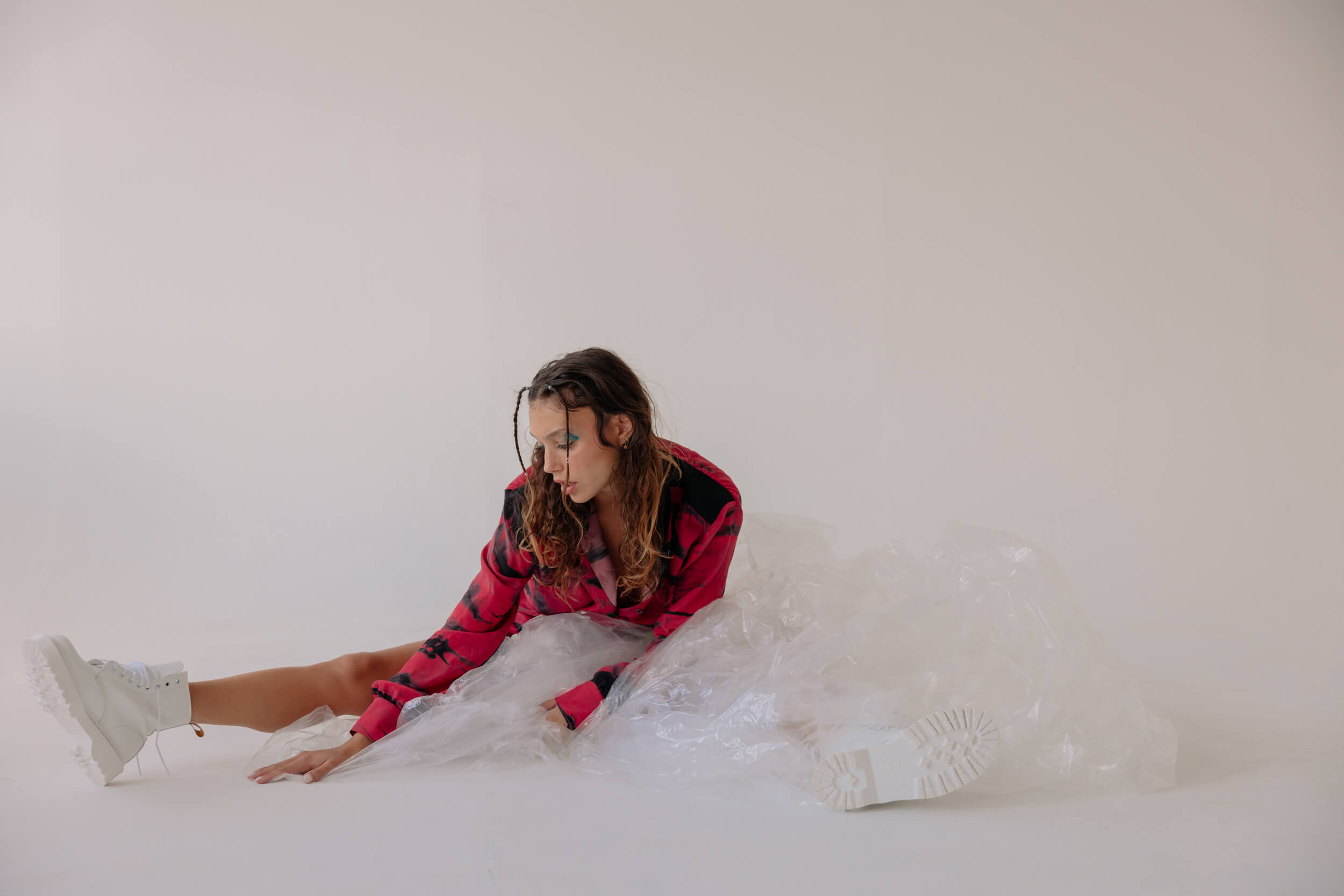
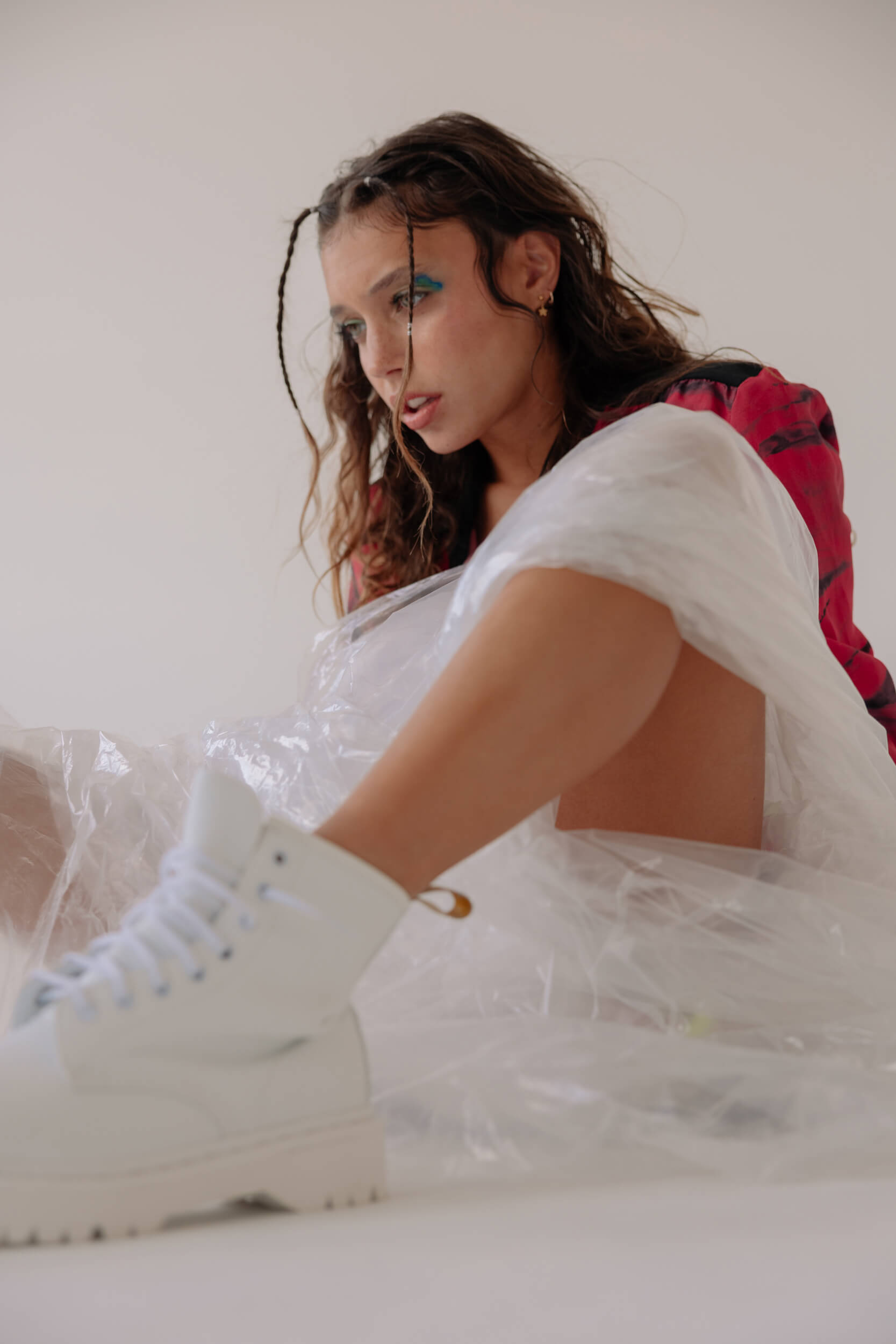
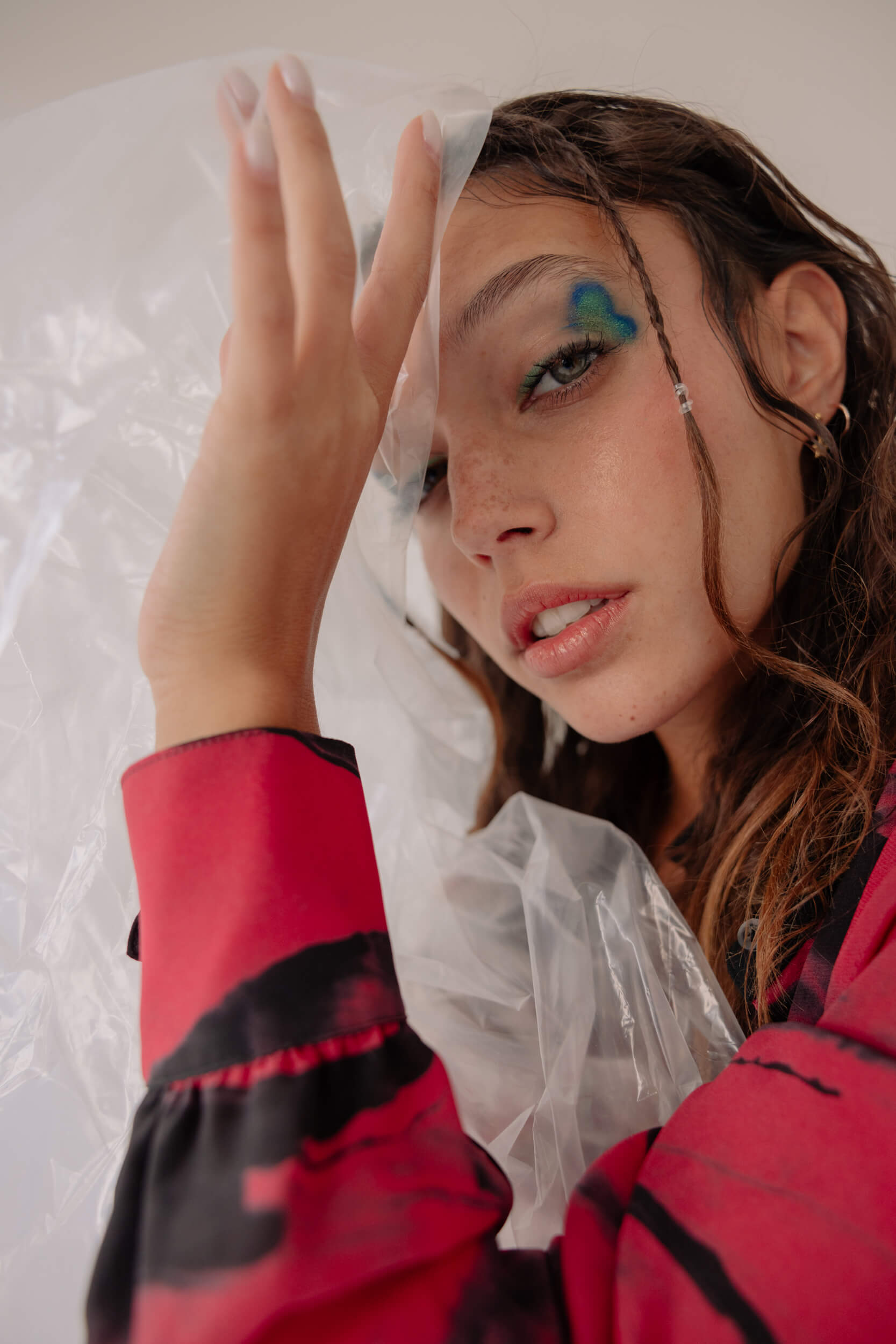
Here, too, there should be an all-round awareness, in the sense that it shouldn’t always be us young people to talk about climate change, religion, social rights, or, if it’s right that we talk about that in order to make our voice heard, someone should actually listen to us!
Sometimes, in fact, I feel hopeless, but I keep talking about it because even though maybe it won’t actually get to people who have the power, it could get to a boy or a girl my age and make them think “these motivations can be interesting, I can try and get more information”, and so I could open the eyes of more people. The more we are to bring forward the same idea, the easier it gets to change things and be heard.
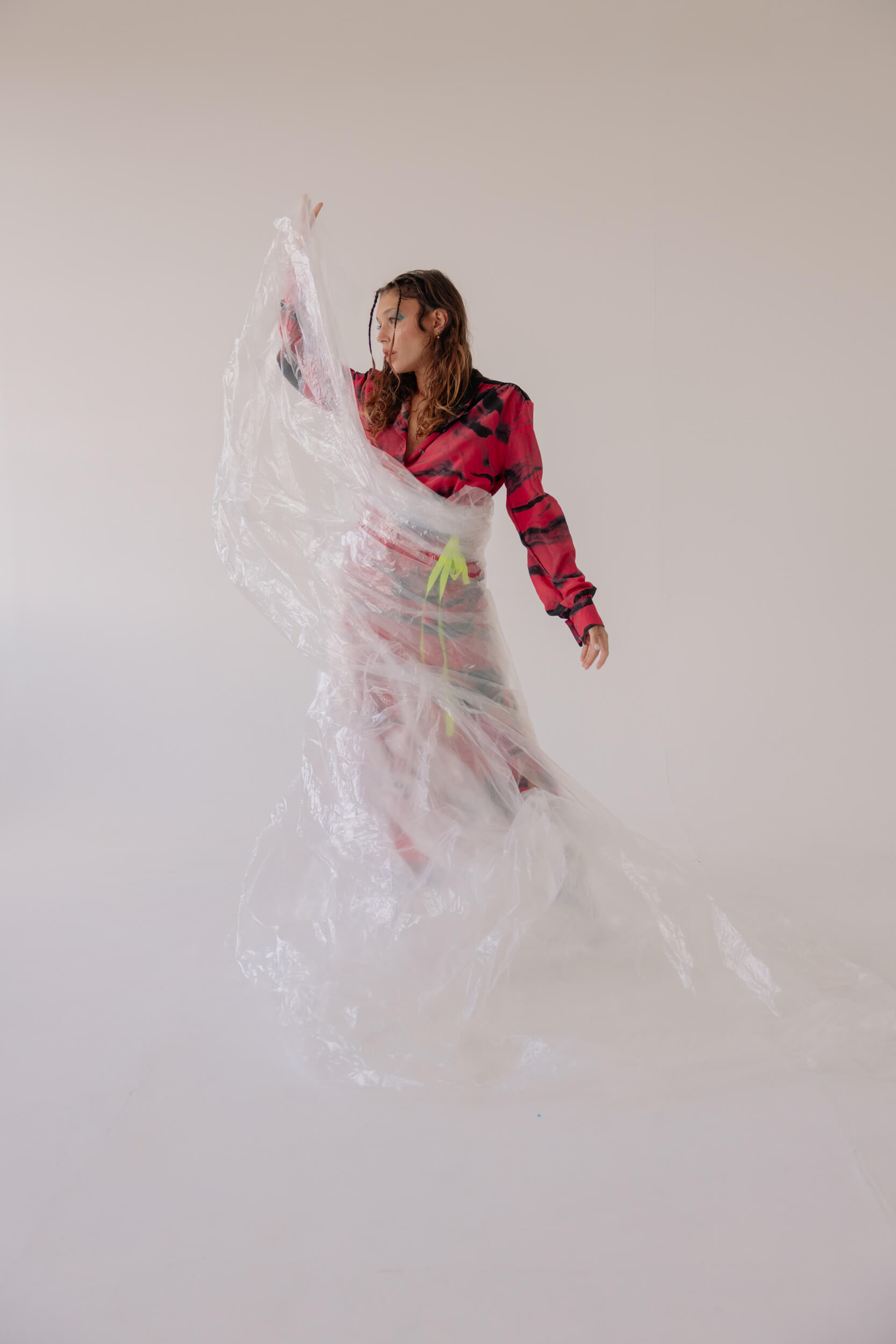
“The more we are to bring forward the same idea, the easier it gets to change things…”
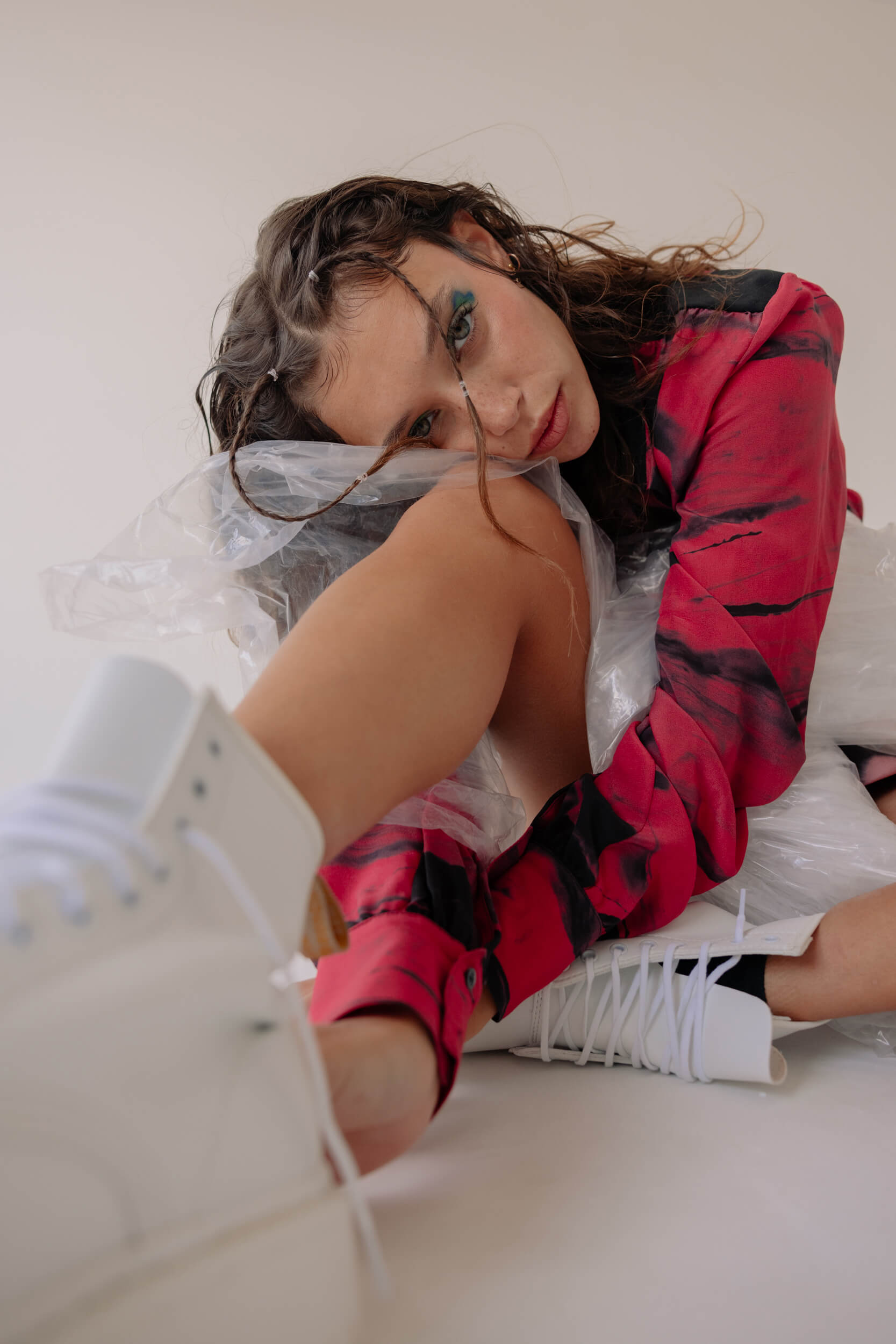
What stories do you dream to tell?
Acting-wise, those stories make you keep hoping.
Some time ago, I saw the movie “Beautiful Boy”, with Timothée Chalamet and Steve Carrel: I loved it from beginning to end. That’s a story that was right to tell, in my opinion, and that made me realize how important cinema is for society, and how important it is to show things from many points of view. Someone seeing a drug addict who can’t stop relapsing is ready to judge. Then, you see stories like that one, told with such sensitivity, in such a sweet but raw way, and you tell yourself that perhaps we should get rid of judgments, at times. That movie made me empathize a lot with the character, and it’s what I hope to do with my job, I hope I can change people’s points of view, or even simply show them a different one.
What’s your happy place?
My pole dance gym in Nova Milanese, it’s called Armony Dance, and it’s my safe place in the world.
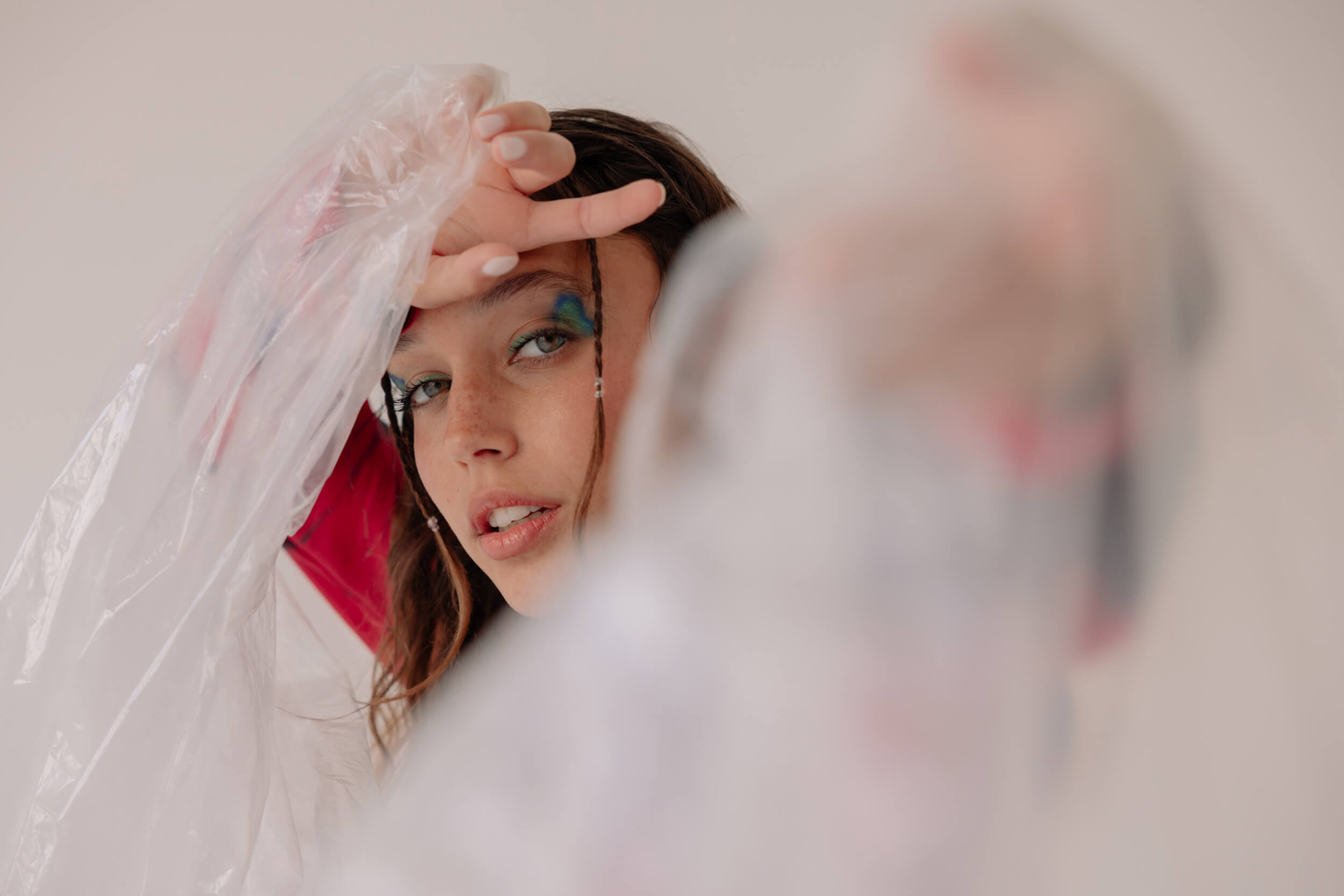
Photos & Video by Johnny Carrano.
Hair and Makeup by Vanessa Vastola.
Thanks to Andreas Mercante & Edoardo Andrini.
Thanks to YD’Actors – Yvonne D’Abbraccio.
LOOK 1
Total Look: Gilberto Calzolari
Shoes: Kallistè
LOOK 2
Total Look: Gilberto Calzolari
Shoes: Dr. Martens

